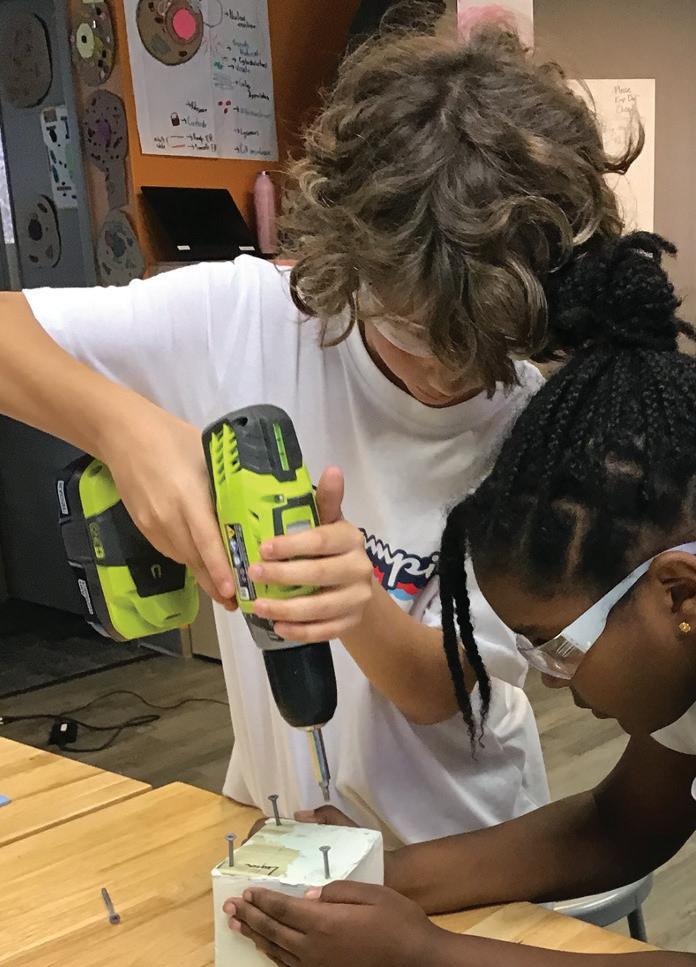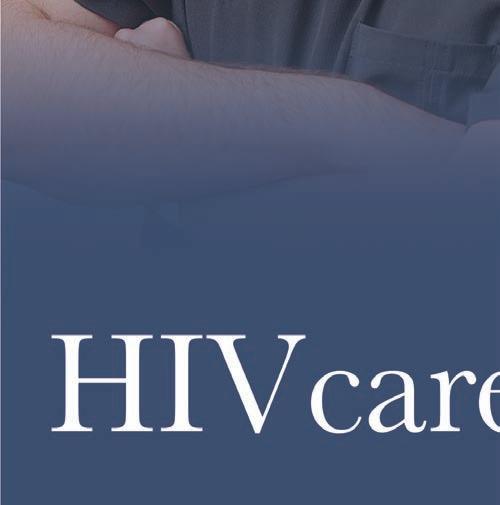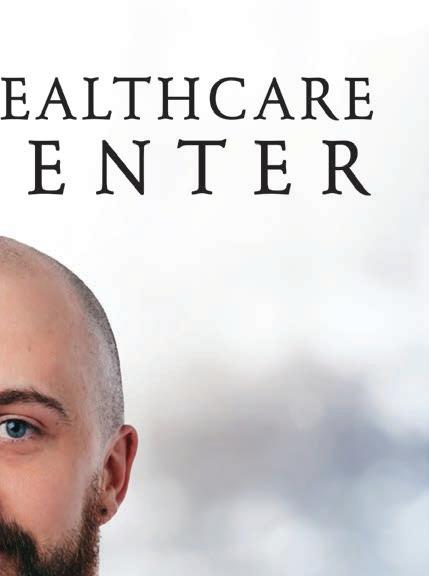




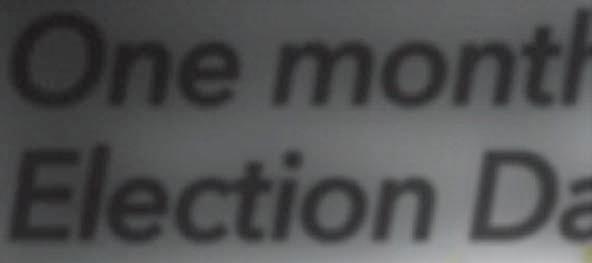




Rep. Garcia, other Harris supporters talk LGBTQ turnout, PAGE 10


















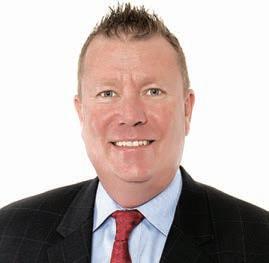





























ADDRESS PO Box 53352
Washington DC 20009
PHONE
202-747-2077
news@washblade.com
INTERNET washingtonblade.com
PUBLISHED BY Brown Naff Pitts Omnimedia, Inc.
PUBLISHER
LYNNE J. BROWN
lbrown@washblade.com ext. 8075
EDITORIAL
EDITOR
KEVIN NAFF
knaff@washblade.com ext. 8088
SR. NEWS REPORTER
LOU CHIBBARO JR. lchibbaro@washblade.com ext. 8079
WHITE HOUSE CORRESPONDENT
CHRIS KANE
ckane@washblade.com extg 8083
INTERNATIONAL NEWS EDITOR
MICHAEL K. LAVERS mlavers@washblade.com ext. 8093
POP CULTURE REPORTER
JOHN PAUL KING
PHOTO EDITOR
MICHAEL KEY mkey@washblade.com ext 8084
CONTRIBUTING WRITERS
DANIEL ITAI, EDICIÓN CIENTONCE, QUORUM, WDG, STEPHANIE MONDRAGÓN, ISAAC AMEND , TINASHE CHINGARANDE, DUNIA ORELLANA, REPORTAR SIN MIEDO, PETER ROSENSTEIN, MARK LEE, LATEEFAH WILLIAMS, KATE CLINTON, KATHI WOLFE, ERNESTO VALLE, YARIEL VALDÉS GONZÁLEZ, PHILIP VAN SLOOTEN, KATLEGO K. KOLANYANEKESUPILE, KAELA ROEDER, TREMENDA NOTA, ALBERTO J. VALENTÍN, MAYKEL GONZÁLEZ VIVERO, ORGULLO LGBT. CO, ESTEBAN GUZMAN, ANDRÉS I. JOVÉ RODRÍGUEZ
CREATIVE DESIGN/PRODUCTION
AZERCREATIVE.COM
SALES & ADMINISTRATION
DIRECTOR OF SALES & MARKETING
STEPHEN RUTGERS srutgers@washblade.com ext. 8077
SR. ACCT. EXECUTIVE
BRIAN PITTS
bpitts@washblade.com ext. 8089
CLASSIFIED ADVERTISING/ADMINISTRATION
PHILLIP G. ROCKSTROH prockstroh@washblade.com ext. 8092
NATIONAL ADVERTISING
RIVENDELL MEDIA
212-242-6863; sales@rivendellmedia.com
For distribution, contact



Monday,








franchise failed to stop harassment, retaliation
By LOU CHIBBARO JR. | lchibbaro@washblade.com
A D.C. Superior Court jury on Aug. 15 ordered a company that owned and operated a McDonald’s restaurant franchise in Northwest Washington to pay $930,000 in damages to a transgender employee who charged in a lawsuit that she was subjected to discrimination, harassment, and retaliation because of her gender identity in violation of the D.C. Human Rights Act.
The lawsuit, which was filed in January 2021 by attorneys representing Diana Portillo Medrano, says Medrano was first hired to work at the McDonald’s at 5948 Georgia Ave., N.W. in 2011 as a customer service representative and was recognized and promoted for good work until she began to transition as a trans woman two years later.
It says she was fired in 2016 after she filed a discrimination complaint with the D.C. Office of Human Rights on grounds that she did not have legal authorization to work in the U.S. as an immigrant from El Salvador. One of her attorneys, Jonathan Puth, said the jury agreed with the lawsuit’s allegation that the reason given for the firing was a “pretext” and the real reason was retaliation for her discrimination complaint.
Puth said evidence was presented during the eight-day civil trial that the McDonald’s had knowingly hired other immigrant employees who did not have legal authorization to work and never held that against them.
“Despite a successful five-year career with McDonald’s marked by raises, promotions, and awards and absence of discipline, Plaintiff Diana Medrano’s supervisors and co-workers subjected her to a barrage of taunts, laughter, ridicule, and harassment because she is a transgender woman,” the lawsuit states.
“Managers and supervisors routinely referred to her as male despite her expressed request that they respect her gender identity as female, encouraging co-workers to harass her relentlessly in like fashion,” it says. “When she complained to her managers, they claimed that the harassment was justified because she hadn’t legally changed her name,” the lawsuit’s complaint continues.
“After she formalized and elevated her complaints, Defendants fired her on pretextual grounds. Defendants discriminated against Ms. Medrano because of her gender identity and retaliated against her in violation of the District of Co-
lumbia Human Rights Act,” the lawsuit complaint states.
The lawsuit names as defendants International Golden Foods LLC and MCI Golden Foods LLC, two companies based in Burke, Va. that it says were owned and operated by Luis Gavignano, who is also named as a defendant in the lawsuit. The lawsuit says the two companies held the franchise rights to own and operate the McDonald’s where Medrano worked.
The Washington Blade’s attempts to reach a spokesperson for the two companies and for Gavignano as well as two of the attorneys that represented them in contesting the lawsuit through email and phone messages were unsuccessful.
In a nine-page written answer to the lawsuit filed Feb. 12, 2021, on behalf of International Golden Foods, which is referred to as IGF, attorneys Amy M. Heerink and Kelvin Newsome dispute the allegations that Medrano was targeted for discrimination and harassment because of her gender identity.
The written answer to the complaint highlights the company’s claim that Medrano was fired because she didn’t have legal authority to work in the U.S. It refers to the company’s personnel official, Carla Vega, who informed Medrano that she could no longer work for the McDonald’s outlet.
“IGF admits that Ms. Vega informed Plaintiff that her employment had to be terminated due to Plaintiff’s voluntary and unprompted statement during the investigation that she was not authorized to work in the United States,” the written answer to the lawsuit states. “IGF admits that Plaintiff’s employment was terminated based on her ineligibility to work in the United States,” it says.
“The jury clearly found that IGF continually used unauthorized employees, hired and employed unauthorized workers knowingly,” Puth, Madrano’s attorney, told the Blade. “And they never fired anyone for that reason at any of their stores except for Diana,” Puth said.
“And so, the jury found that the reason given was a pretext for retaliation,” he said. “That was what was motivating them. They were motivated to retaliate against her because she kept complaining about discrimination.”
Puth noted that Medrano initially filed her complaint with the D.C. Office of Human Rights and was represented at
Poduslo nominated for Brain Industry Association award
By PETER ROSENSTEIN
The Comings & Goings column is about sharing the professional successes of our community. We want to recognize those landing new jobs, new clients for their business, joining boards of organizations and other achievements. Please share your successes with us at comingsandgoings@ washblade.com.
Some people are especially inspiring to write about, and one such person is Joseph Poduslo. He is justly proud of his “Luminary of the Year” nomination, which is granted to survivors, caregivers, and researchers, by the Brain Industry Association of America (BIAA). I urge you to take a look at its website, and maybe help Poduslo raise some funds for this incredible organization.
“I have always wanted to share my journey to help and inspire others,” he said. “The brain is the most amazing cre-
ation and retraining the brain takes time and effort. But I’m doing it.” You can read his story in his own words. You will find it as inspiring as I did.
After spending time with his family in Texas, he is now back in D.C. He is Senior Vice President, and founding agent, the Poduslo Group. His bio notes, “His work for his real estate clients has garnered him industry-wide recognition. Joseph has been featured in the Washington Post, NBC, CNN, and in 2018, Washington Life Magazine’s ‘Most Influential Business Person Under Forty.’ … When Joseph is not redefining the real estate industry, he has invested in numerous small businesses and restaurants in downtown D.C. over the last 17 years. He founded the D.C. Progressive Dinner, an organization that helps SMYAL, a local non-profit. Joseph serves on the Capital Alliance board in the D.C. Area.”
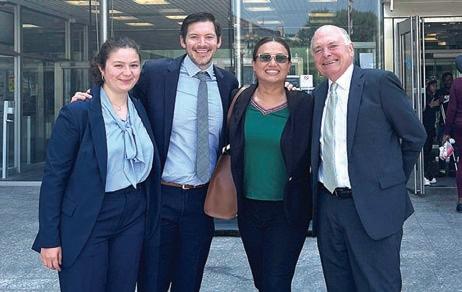
that time by an attorney with Whitman-Walker Health’s legal clinic. He said Whitman-Walker later referred her to his law firm, Correia & Puth, after determining the case could not be resolved at the Office of Human Rights.
The jury’s verdict of $930,000 in damages included $700,000 in punitive damages and $230,000 in damages for the emotional distress Medrano suffered due to the discrimination and harassment to which she was subjected.
A statement released by the law firm representing her says the action by the jury is believed to be the first jury verdict in a transgender employment discrimination case under the D.C. Human Rights Act.
“When you are sure of what you have experienced, no matter how much time passes, the truth will come to light,” Medrano said in the statement released by her attorneys. “Our truth is our best weapon to achieve justice,” she said. “It is truth, justice, and faith in God that have helped me get here.”
In his law firm’s statement, Puth called the jury’s verdict a vindication of Medrano’s 11-year battle for her legal rights.
“Diana is our hero,” he said. “She stood up for her rights in the face of terrible harassment and kept fighting even after she was fired for doing so. This verdict puts other employers on notice that tolerating harassment of transgender employees is both unlawful and costly.”
Puth said earlier this year Medrano was approved for U.S. political asylum based on discrimination and harassment she faced in El Salvador. He said she is currently working fulltime as a counselor for Empoderate, an LGBTQ health organization providing services for the Latina/Latino community that is affiliated with the D.C.-based La Clinica del Pueblo.
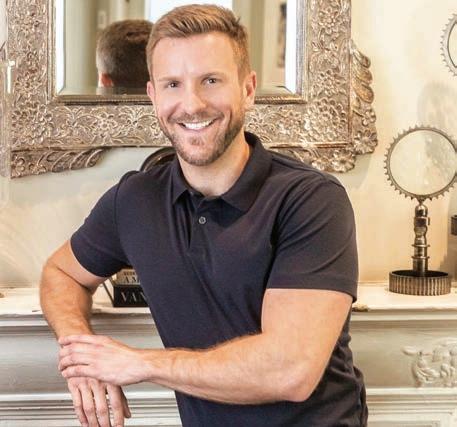

By CLINTON ENGELBERGER
President Joe Biden signed a letter acknowledging Equality Forum’s LGBTQ History Month launch event held on Sunday, writing that, “by celebrating stories of bravery, resilience and joy, your example inspires hope in all people seeking a life true to who they are.”
Malcolm Lazin, Equality Forum executive director, said Biden’s letter is “consequential.” He noted that one year before the White House delivered a proclamation for Black History Month, it issued a letter signed by the president.
“It’s our hope that next year, our nation’s 47th president will issue that proclamation for LGBT History Month,” Lazin said.
Equality Forum is an LGBTQ civil rights organization with an educational focus based in Philadelphia. The group’s work includes coordinating LGBTQ History Month, producing documentary films and overseeing the application for and installation of government-approved queer historic markers.
When spearheading LGBTQ History Month for the first time back in 2006, Lazin said many pushed back against the idea. Some media outlets claimed it was trying to turn straight people gay or promote pedophilia.
But Lazin said the homophobic reactions died down when people were educated on topics that typically weren’t taught in a widespread way.
“We were demonized, marginalized, and vilified,” Lazin said. “One of the certain principal ways you’re going to make headway is if you humanize who we are, and also educate people about the important contributions we make to our common society.”
Education has always been Equality Forum’s solution to societal backlash or controversy since its inception, Lazin said.
The organization got its start in 1993 under the name PrideFest Philadelphia. Lazin, who was the founder, said it was created during a time when Pride parades were the main focus of the LGBTQ community.
In an effort to shift focus onto civil rights issues, PrideFest hosted its first LGBTQ summit that eventually transformed into an event featuring national and international organizations. Lazin said it was an effort to educate people on LGBTQ history as well as inform the community on queer rights around the world.
Though that event was terminated in 2020, Lazin is still focused on educating both queer and straight people on LGBTQ civil rights. Equality Forum honors 31 “LGBTQ icons” each year for every day in October.
This initiative began when Equality Forum started coordinating LGBTQ History Month back in 2006, but Lazin didn’t notice their efforts taking off until about five years in.
“In year one, people thought, ‘Oh yeah, those are like all the important names of the gay community,’” he said. “People paid a little bit more attention the following years, and all of a sudden they’re recognizing, ‘Oh, in a certain sense I was clueless about the role models that the gay community has.’”
This year’s icons being recognized include names like singers George Michael, Luther Vandross, and Sam Smith; pioneering drag queen William Dorsey Swann; “The Bachelor” star Colton Underwood; Wisconsin Congressman Mark Pocan; and longtime Washington Blade Editor Kevin Naff.
Pocan received the International Role Model Award during Sunday’s LGBTQ History Month launch event. It’s the longest-standing LGBTQ award in the nation, and has been presented to prominent figures like former Speaker of the House Nancy Pelosi and U.S. Secretary of Transportation Pete Buttigieg.
He said accepting the award allowed him to reflect on the progress that’s been made in a relatively short time.
“I was preparing to make some remarks for the event, and I realized that I’ve been kind of in the front row of a lot of the history making in the country, because more of our history is in the last several decades,” Pocan told the Washington Blade. “There are significant moments in the past, but where the real improvements have happened have been more recent.”
In 1995, former President Bill Clinton invited Pocan, who is gay, and other LGBTQ elected officials to The White House for the first time. When they arrived and were going through security, Pocan said they noticed everyone was wearing blue gloves. Initially assuming it was due to enhanced security following the aftermath of the Oklahoma City Bombing , Pocan said they later discovered the Secret Service agents
thought they could contract AIDS from out elected officials.
He said the Secret Service issued an apology letter and the Clinton administration made it clear that wasn’t their policy. Even more memorable for Pocan was when then-Vice President Al Gore made it a point to shake everyone’s hands at the event.
Comparing that memory to Biden’s recent letter puts the advancements of LGBTQ rights into perspective for Pocan. He said that’s the reason recognizing and remembering queer history is vital.
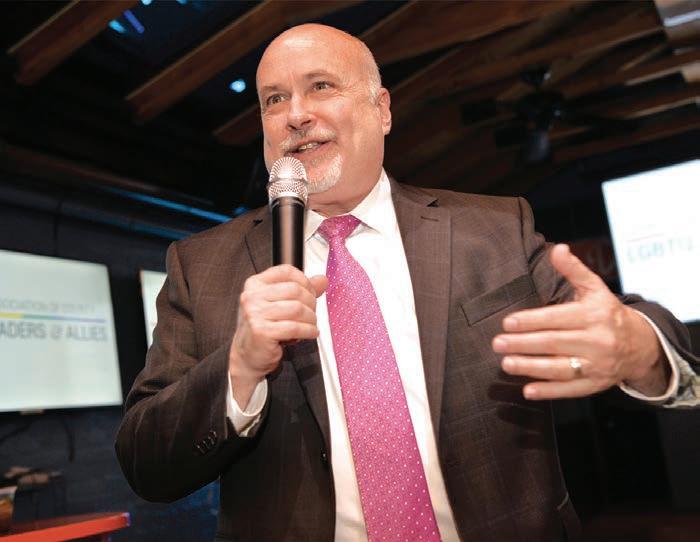
“If you don’t know the history, it’s too easy to repeat it,” he said.
The fight to recognize the global work done toward advancing LGBTQ civil rights, however, isn’t over, Lazin said.
Many states are working to restrict LGBTQ topics from being taught in schools. Florida Gov. Ron DeSantis signed HB 1069 last year, dubbed “Don’t Say Gay” by critics, to prohibit lessons on sexual orientation and gender identity.
The New College of Florida faced backlash when photos of hundreds of library books, many containing LGBTQ topics, overflowing a dumpster were shared online A New College spokesperson said the books were “taken after discovering that the library did not follow all of the state administrative requirements while conducting the routine disposition of materials.”
Despite what the future may hold for LGBTQ content in schools, Lazin said the resources Equality Forum promotes, including the website featuring 31 queer icons in October, are always available.
“At least on this site, students, teachers, and guidance counselors have resources,” he said. “So if you’re an English teacher and you want to be celebrating LGBT History Month, click on poets, or click on authors. You’ve got a whole rich range of people to be able to bring into your curriculum.”
The reality of what LGBTQ History Month has become today is more than the work of one organization; Lazin said it’s the combined effort of local communities that are curious about their own history.
“While we could not possibly take on doing the history of all the cities around the country or in North America or around the world, it really has helped to encourage people to appreciate that history and to make sure that it is well documented,” Lazin said.










By CHRISTOPHER KANE | ckane@washblade.com
Vice President Kamala Harris has eked out a narrow lead in the latest polls, but slim margins in seven key battleground states are still likely to decide the outcome of the election, which experts say will be the closest America has had in decades, if not more than a century.
And LGBTQ voters, who comprise a larger share of the electorate than ever before, are expected to play a major role in November.

The Washington Blade discussed what lies ahead for the Harris team, particularly with respect to LGBTQ constituent engagement, in separate interviews last week with one of the campaign’s gay co-chairs, U.S. Rep. Robert Garcia (D-Calif.), and its national LGBTQ+ engagement director, Sam Alleman.
With just over a month until Election Day, the Harris-Walz team is in overdrive enlisting key surrogates and staff to fan out across the U.S. With a focus, of course, on Arizona, Georgia, Michigan, Nevada, North Carolina, Pennsylvania and Wisconsin.
“We’ve got to make sure we compete everywhere,” Garcia said. “So wherever I can be, I’ll be.”
The congressman headlined an event with the LGBTQ community in Phoenix on Monday night for Out for Harris, the campaign’s LGBTQ-focused national organizing effort. Queer voters are “always engaging and always asking questions,” he said, eager to discuss “their future and their rights and how dangerous Donald Trump would be for them.”
Garcia said the “best part” about his involvement with the Harris campaign has been traveling the country to connect with these folks. “I actually took 100 local activists from Long Beach, from my community, out to Nevada, with two busses a couple weeks ago, which was great,” he said, “just to go door knocking.”
Up next for the congressman is another trip to Nevada and then to Pennsylvania, he said.
“We’re aiming to have Out for Harris working groups and committees in all 50 states to do this work of mobilizing voters in this critical election to elect Kamala Harris and Tim Walz and defeat Donald Trump and J.D. Vance,” Alleman said.
“We’ve had in-person phone banks in New York, D.C., and California,” while “we have New Jersey and Washington State and Massachusetts hosting in-person events,” he said, explaining that by hitting even places that might “not be part of our pathway to victory,” the campaign is building out the infrastructure to help reach “voters in battleground states and be that surge capacity.”
Additionally, “I can’t say too much just yet, but we’re really, really excited for what we’re planning for Pride in Philadelphia, Phoenix Pride, Las Vegas Pride, Atlanta Pride” — all taking place, Alleman said, in mid-October, by which time voting will have already begun in most of those cities.
“Pride is fun,” and the campaign’s presence in places where the community gathers to celebrate is an exemplification of the “joy” that has become a defining feature of the campaign since Harris was tapped to lead the Democratic ticket on July 21, Alleman said.
In his conversations with voters, Garcia said, Project 2025, the 900+ page governing blueprint for a second Trump term, is often top of mind, notwithstanding the former president’s efforts to “skirt or dodge” the extreme plans detailed in the document.
“It’s clear that this is the Donald Trump agenda. I think everyone knows that, and we’re going to continue to hammer home that it’s also very bad for LGBTQ+ people,” he said, noting that Project 2025 contains “all sort of horrible things,” in-
cluding plans to roll back and revoke rights like LGBTQ-inclusive workplace protections while advancing policies like “book bans [that target] our community in schools.”
More broadly, Garcia said, “there’s no question that Donald Trump is bad for gay people. I mean, look at the Supreme Court...just on the courts alone, how could you argue any differently?”
One could look at everything from Trump’s “positions on trans issues,” to “his authoritarian nature” and his opposition to the Equality Act for evidence that his election would be harmful to the LGBTQ community, Garcia said. “I mean, I could go on and on.”
Alleman echoed those remarks and added that Harris and Walz, by contrast, have fought to expand rights and protections for LGBTQ people throughout their careers, standing up for the community well before doing so was popular or politically advantageous. “Standing with us when it wasn’t necessarily very easy to do,” he said, “speaks volumes to our community, but it also just speaks volumes to their values and to their leadership.”
“In every reality, under almost every other issue that you could talk about, right, Kamala Harris and Tim Walz are fighting for LGBTQ people’s totality of their lives, when it comes to their ability to access healthcare, when it comes to their ability to work with dignity and make a living wage and work in an economy that works for them, rather than big corporations,” he said. “Those are the issues that LGBTQ+ people also care about the most, in addition to their freedoms and the things that are identity or community driven.”
Likewise, Garcia said voters’ concerns about the judiciary extend beyond LGBTQ rights and into issues of reproductive freedom, because they understand that the former president appointed three right-wing justices to the Supreme Court, which led to the 2022 decision scrapping Roe v. Wade’s constitutional protections for abortion. “There’s a lot of conversation about abortion rights,” he said. “I think people understand that that’s where Donald Trump plans to take the country even further into restrictions — so, people are pushing back on that.”
“Vice President Harris has made Roe one of the central pieces of her campaign, because there’s still a lot of folks out there that are just tuning in, that might, you know, have gotten a lot of their information from places like Fox [News] or, you know, misinformation on Facebook or social media,” Garcia said.
“It’s important to get the facts out there,” he added, “to get people out there talking to their neighbors, going door to door — I mean, all of that matters.”
First and foremost, Alleman said, Out for Harris is implementing a robust “national, distributed organizing program [that’s] really oriented around voter contact via phone calls,” which is on track — conservatively — “to do approximately 1.2 million calls before Election Day.”
Alleman added that “the work around these community calls” also involves “taking those calls and turning them to actual organizing that supports their battleground states.” And while “it’s not very sexy,” he stressed that these efforts are “low thrills, high value in terms of talking to voters” because “we are truly committed to getting as many people on the phone that we can across the country, especially in the battleground states, between now and Nov. 5.”
By Oct. 12, he said Out for Harris will have phone banking events every day, “and it’ll be like community-based; Monday is Broadway night, Tuesday is trans folks for Harris, Wednesday is LGBTQ+ women for Harris, Thursday and Saturday are catch-all for [the Human Rights Campaign],” and Friday is yet
to-be-determined. (Volunteers can sign up to participate or learn more about the program at kamalaharris.com/out.)
Alleman shared that during a recent Out for Harris Broadway-themed call, “we had like, 3,000 people in attendance. And I want to say there were like 500 or 600 people trying to phone bank with us, and they have their first canvassing trip into Pennsylvania,” which illustrates how the program is working within the campaign to ensure “that these calls are translating into organizing.”
Acknowledging that the relationship between LGBTQ rights and organized religion is complicated, Alleman said that Out for Harris plans to administer trainings and lead an organizing call for faith leaders who have created safe spaces for LGBTQ people or otherwise been supportive of the community, such that the campaign can “make sure we’re leveraging their congregations to get them involved.”
Along with organizing in-person events, joining Pride celebrations, administering phone banks, and working with high-profile surrogates like Garcia to help boost the campaign’s message in the battlegrounds, Alleman highlighted upcoming moves like Out for Harris’s plans to partner with Democratic National Committee to provide toolkits to drag performers.
The goal, he said, is to provide materials and guidance “so they can do this work on their own, at their shows” such as by displaying QR codes for fans to get involved and providing instructions for how they can register to vote.
To contend with the challenge of navigating a “fragmented media market,” Alleman said, the Harris campaign is focused on “relationships and messaging in all the senses and ways.” This means, for instance, maintaining a strong social media game, dispatching folks to do “the relational organizing on the ground,” and “finding the nontraditional messengers” — like drag queens and faith leaders — while also “hitting everyone where we can” with earned media coverage and paid advertising.
Alleman also noted Harris’s appearance on “RuPaul’s Drag Race” for the “All-Stars” finale in June, another example of how the campaign has been creative and strategic with outreach to LGBTQ voters and allies.
Alleman stressed that the Harris campaign does not take support from LGBTQ voters for granted. “We have to work to earn these voters’ votes, too. And I think the program we are building is so indicative of that, and it’s truly our goal beyond just LGBTQ+ rights — we’re communicating with voters, LGBTQ+ voters, and equality voters about the full range of our platform and what we’re doing, because we firmly believe it will benefit them. Extraordinarily.”
Often, Alleman said, “we divorce LGBTQ+ experiences and people as if they don’t have the same experiences and desires as everyone else” but the Harris campaign is “making sure that we’re saying where we stand on the LGBTQ+ issues but [also] making sure that we’re not losing sight of the totality of the voter we’re communicating to.”
“LGBTQ+ people are more likely to suffer from housing insecurity, more likely to suffer from food insecurity, more likely to be in poverty, more likely to be homeless as teenagers,” he said, “and all of the work that we’ve done in the inflation Reduction Act and in this administration, and all the things that Kamala Harris has said that she’s going to do [if elected] have direct impacts on the LGBTQ+ community and our ability to live full, authentic lives.”
This means “not just to be out as LGBTQ, which is critically important, but [also] having a government that fully cares for everything that goes into what being an LGBTQ plus person is,” Alleman said.


The LGBTQ student group called OutLaw at George Mason University’s Antonin Scalia Law School in Arlington, Va., is inviting LGBTQ students at other law schools across the D.C. metropolitan area and the LGBTQ community and its allies to an Oct. 25 event on the school’s campus called Pride on the Plaza.
A statement released by OutLaw says the event will be held from 6-10 p.m. on Mason Square Plaza, which serves as a campus-like plaza in front of the law school building at 3301 Fairfax Dr. in Arlington.
“Coinciding with LGBT Pride Month, Pride on the Plaza is a gathering of the D.C. Metro area’s LGBTQIA+ law student organizations and the community at large,” the statement says. “It’s more than just a party; it’s a chance to stand together, to celebrate who we are, and to show our pride.”
The statement says organizers have invited lawyers and legal professionals as well as undergraduate and graduate students at the university to participate in the event. It says there will be food and beverages and live entertainment, including a “first ever” drag show at the Scalia Law School.
Mackenzie Freilich, the OutLaw president, said the event will also include a raffle for items such as concert tickets and autographed sports memorabilia, a free sexual health screening clinic, and information stations provided by several LGBTQ organizations, including the Human Rights Campaign.
According to the group’s statement, the event will be lim-
ited to people 18 years of age and older and there will be an admission fee of $8 to help support the cost of putting on the event and the work of OutLaw. It says tickets can be purchased online in advance of the event or at the event itself.

law
“We are rewriting the narrative from hateful rhetoric to impactful, long-lasting change for good,” Freilich told the Washington Blade. “We must not let hate win, we must rise up and unite the community, not divide.”
Morgan Menzies, another student at the Scalia Law School who is organizing the Pride on the Plaza event, said
Freilich was referring to the anti-LGBTQ laws that several states have passed recently or are considering passing.
She said organizers are also concerned about the anti-LGBTQ proposals in a document called Project 2025 that conservative advocates want Republican presidential candidate Donald Trump to put in place if elected president.
Menzies said another concern organizers of the event have is the statement made by U.S. Supreme Court Justice Clarence Thomas at the time the high court overturned Roe v. Wade. She noted that Thomas said the court should reconsider its ruling legalizing same-sex marriage.
The Scalia Law School is named after another conservative former Supreme Court justice, the late Antonin Scalia, who served on the court from 1986 to the time of his death in 2016.
Menzies said school officials approved the LGBTQ group’s plans to hold the event on the school’s campus plaza and some of the school’s law professors have expressed support for the event.
“We wanted to host this event to create visibility on our campus because we are a minority at our school and also provide a networking opportunity with the other progressive law students in the region so that we can strengthen those bonds,” Menzies told the Blade.
Additional information and ticket availability for Pride on the Plaza can be accessed at OutLaw’s website.
LOU CHIBBARO JR.
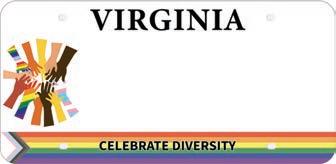
Diversity Richmond has designed a license plate that allows Virginia drivers to celebrate and raise the visibility of LGBTQ diversity.
The Virginia-based LGBTQ nonprofit needs 450 applications by January for the plate to become an official state option.
The license plate design features a group of hands stacked on top of each other in the far left corner, and the Progress Pride flag runs horizontally across the bottom of the plate. The words “Celebrate Diversity” are prominently displayed over the flag.
Rev. Dr. Lacette Cross, executive director of Diversity Richmond, said the design celebrates the diversity of the LGBTQ community.
“[The design] reflects the diversity of the intersecting identities of our community,” she said.
Applications are available on Diversity Richmond’s website, and the license plate costs $25. Once completed, applicants should email the form to Diversity Richmond, not to the
Virginia DMV, as Diversity Richmond will submit both the applications and fees to the DMV on their behalf.
If the organization gathers 450 applications and payments by the start of the 2025 Virginia General Assembly session in January, Del. Betsy B. Carr (D-Richmond) will sponsor the plate through the approval process to make it an official option.
The initiative also serves as a fundraiser for Diversity Richmond, which will receive a portion of the proceeds from the license plate registration fees.
“The ultimate benefit,” Cross said, “is the continual visibility of LGBTQ persons, our allies, and our supporters that are driving around the Commonwealth of Virginia, spreading the message of acceptance and of allyship.”
She described Diversity Richmond as the hub of the LGBTQ community in Greater Richmond, noting the organization’s “really dynamic” work within the community. The nonprofit runs the popular thrift store Diversity Thrift, hosts the annual Virginia Pridefest in September, and exhibits the work of LGBTQ artists in its art gallery.
Diversity Richmond is planning to celebrate its 25th anniversary with a public party at the Virginia Museum of History & Culture on Wednesday, Nov. 13.
ERKKI FORSTER
The Alexandria, Va., City Council on Sept. 24 voted unanimously to approve an “LGBTQ+/Trans Sanctuary Resolution” that, among other things, calls on the city attorney and city manager to take administrative or legal action to oppose anti-LGBTQ policies or laws proposed or enacted on the national, state, or local levels.
The resolution was introduced by gay Council member Kirk McPike and drafted by an organization called the Metro D.C. Democratic Socialists of America (DSA) Trans Rights & Bodily Autonomy Campaign.
“We reaffirm our commitment to equal protection and freedom from discrimination on the basis of sex, including our commitment to ensuring LGBTQ+ individuals are free from discrimination, whether by individuals, businesses, or government actors,” the resolution states.
“We call upon the other elected leaders of Alexandria to use the legislative and administrative authority available to them to take such actions as may be necessary to protect LGBTQ+ individuals from discrimination on the basis of sex due to their sexual orientation or gender identity and to enshrine such protections into law,” the resolution continues. It concludes by stating, “We ask the City Attorney to actively seek participation, as a plaintiff or amicus curiae, in ongoing or future litigation to protect the rights of LGBTQ individuals.”
In 2020 the Virginia General Assembly passed and then Gov. Ralph Northam (D) signed legislation banning discrimination based on sexual orientation and gender identity. The city of Alexandria and other Virginia jurisdictions, including Arlington, have passed similar LGBTQ nondiscrim-
ination laws.
Lyra McMillan, a spokesperson for the Metro D.C. DSA Trans Rights & Bodily Autonomy Campaign, said the LGBTQ+/Trans Sanctuary Resolution is intended to strengthen and protect the state’s and Alexandria’s LGBTQ rights laws by defending them against attempts to overturn or weaken them from ongoing efforts by anti-LGBTQ lawmakers in Congress and other states.
McMillan points to efforts by Virginia’s current governor, Glenn Youngkin (R), to curtail LGBTQ rights, especially trans rights, in the state’s public schools.
“In the face of this sort of backlash, places like Alexandria need to stand up and push back,” McPike told ALX Now, an online Alexandria news publication.
LOU CHIBBARO JR.
Readers across the country last month observed Banned Books Week, which has taken on added significance amid a surge of censorship efforts.
Banned Books Week, organized by PFLAG and a coalition of other advocacy groups, literary organizations, and educational institutions, seeks to raise awareness about efforts to remove content from public libraries, schools, and bookstores.
The current wave of book bans, which began intensifying in 2021, is driven primarily by conservative groups who disproportionately target titles featuring the voices and experiences of LGBTQ people and people of color.
“This is part of an organized effort to divide our communities by stoking fears against LGBTQ+ people, Black people, and immigrants,” PFLAG Vice President of Advocacy Katie Blair said. “[It] is targeted not only to banning books and censoring schools, but to infiltrating the lives of LGBTQ+ people and those who love them.”
While LGBTQ books have always been a target of book bans, censorship efforts in recent years are more focused on restricting access to LGBTQ content than in the past.
The Washington Post reports “LGBTQ books were the targets of between less than 1 and 3 percent of book challenges filed in schools” from the 2000s to the early 2010s. In 2022, however, 45.5 percent of unique titles that were challenged were written by or about LGBTQ people.
“Book bans have no place in our democracy,” the Congressional Equality Caucus said in a post to its X account.
On the American Library Association’s 2023 list of the 10 most challenged books, seven books featured LGBTQ voices; with Maia Kobabe’s “Gender Queer,” George M. Johnson’s “All Boys Aren’t Blue,” and Juno Dawson’s “This Book is Gay” topping the list.
The consequences of restricting access to LGBTQ stories and voices are far reaching especially for young people, Blair said.
“These bans contribute to the erasure of our communities and our histories, and all our stories deserve to be told. We believe that all students deserve the freedom to learn. They deserve to be able to develop their critical thinking skills, to be in schools that are open and affirming,” she said.
Deborah Caldwell-Stone, the director of the ALA’s Office of Intellectual Freedom, said another difference in the cur-
rent wave of censorship is that most calls to censor books in school libraries and public libraries are now driven by organized advocacy groups.
She explained that in the past, most book challenges were initiated by parents and guardians who were concerned about a particular book their child was reading and brought those concerns to a teacher or librarian.

“But now we’re seeing organized groups or their spokespersons showing up at board meetings demanding the censorship of sometimes hundreds of titles all at once. And we’re seeing state legislatures pass laws that are intended to remove hundreds of books, if not thousands of books, all at once, from library shelves,” she said. Between Jan. 1 and Aug. 31, 2024, ALA’s Office for Intellectual Freedom tracked 1,128 unique titles targeted for censorship. While this number marks a decline from the 1,915 titles challenged during the same period in 2023, it remains far higher than pre-2020 levels, when challenges hovered between 200 and 300 unique titles annually.
Moreover, PEN America, which tracks the total number of book bans rather than unique titles, counted more than 10,000 books that were banned in public schools during the 2023-2024 school year, nearly triple the amount from the previous year. Both ALA and PEN America’s reports exclude instances of soft censorship, where libraries and organizations preemptively avoid purchasing certain books or restrict access due to fear of potential challenges.
According to PEN America, around 8,000 books were banned in Florida and Iowa alone. Both states passed laws in recent years restricting access to books in schools that depict or describe sex. The vague language of the laws has drawn criticism for exacerbating soft censorship, and has often been interpreted to ban books with discussions of gender
and LGBTQ identities.
Vera Eidelman, a staff attorney with the American Civil Liberties Union’s Speech, Privacy, and Technology Project, said, it is “not clear what [the language] means, and that is a problem in and of itself, because if teachers and librarians and other educators face discipline for violating that law, and they don’t know what the law means, that’s a due process problem.”
She noted that the laws have been and are being challenged on grounds of vagueness, and for violating the First Amendment.
Banned Books Week, which library activist Judith Krug founded in 1982, will culminate in “Let Freedom Read Day” on Saturday, on which organizers urge people to take at least one action to defend the freedom to read, such as participating in this year’s elections.
Caldwell-Stone emphasized the importance of being engaged at all levels of government.
“This is an intensely local issue,” she said. “While we are seeing state legislation intended to engage in broad censorship across the state, primarily these decisions are made at the local level.”
Banned Books Week recommends engaging with school and library administrators, school board and library board members, city councilpersons, and elected representatives at meetings to voice support for access to books. People are also encouraged to attend town halls or rallies to demonstrate opposition to book bans, purchase banned books, and volunteer at local libraries.
Throughout the week, filmmaker Ava DuVernay and student activist Julia Garnett, the honorary chairs of this year’s Banned Books Week, are discussing the various ways people can stand up against censorship attempts in virtual events accessible through the Banned Books Week website.
Libraries across the nation, meanwhile, are hosting readings, art exhibitions, and other activities to educate families about the freedom to read.
Caldwell-Stone recommends those who are interested in countering up to censorship efforts view the action toolkit available at www.uniteagainstbookbans.org and the ALA’s “Reader. Voter. Ready.” guide at www.ala.org
ERKKI FORSTER
Edafe Okporo, an author and immigrant rights activist, on Sept. 26 headlined the 25th anniversary celebration of the Amica Center for Immigrant Rights, a nonprofit providing legal services to immigrants facing detention and deportation, at the National Museum of Women in the Arts.
Before taking the stage to read from his book “Asylum: A Memoir and Manifesto,” Okporo spoke to the Washington Blade about his experiences as an asylum seeker and the challenges faced by LGBTQ refugees in the U.S. “Immigration detention centers are jails, but special jails for migrants,” Okporo, who is running for New York City Council, said.
In 2016, he was detained in an immigration detention center in Elizabeth, N.J., for more than five months. He had fled to the U.S. from his home country of Nigeria — which in 2014 criminalized same-sex relationships with penalties of up to 14 years in prison — after being beaten unconscious by a group of people who broke into his apartment and dragged him out onto the street. They had targeted him for helping found an LGBTQ rights organization.
He had imagined the U.S. as a place of safety and refuge, but after informing immigration officers he was seeking asy-

lum, he was detained in a cell with 44 other inmates while officials evaluated his asylum plea.
He eventually won asylum with the help of immigration attorneys, but once he was released from detention, he ini-
tially experienced homelessness and a deep sense of isolation.
“In detention centers,” Okporo explained, “it’s hard for you to be able to have a sense of connection to American society.”
Today, he is the executive director of Refuge America, a nonprofit that aims to limit the time LGBTQ refugees like himself spend in detention centers by organizing Americans sponsors to secure housing and other needs before their arrival. Prior to founding the organization, he was the director of the RDJ shelter, New York City’s only full-time refuge for asylum-seekers and refugees.
Okporo noted that integrating into life in America can be especially challenging for LGBTQ refugees, many of whom come from countries where they had to hide their sexual orientation or gender identity. This often makes it difficult for them to open up and seek the services they need.
“They are thinking within the hierarchy of needs. ‘Can I tell the service provider that I’m gay?’ Then, ‘Can I tell them I’m HIV positive?’ Then, ‘Can I tell them that I need testosterone hormones?’” Okporo said.
ERKKI FORSTER
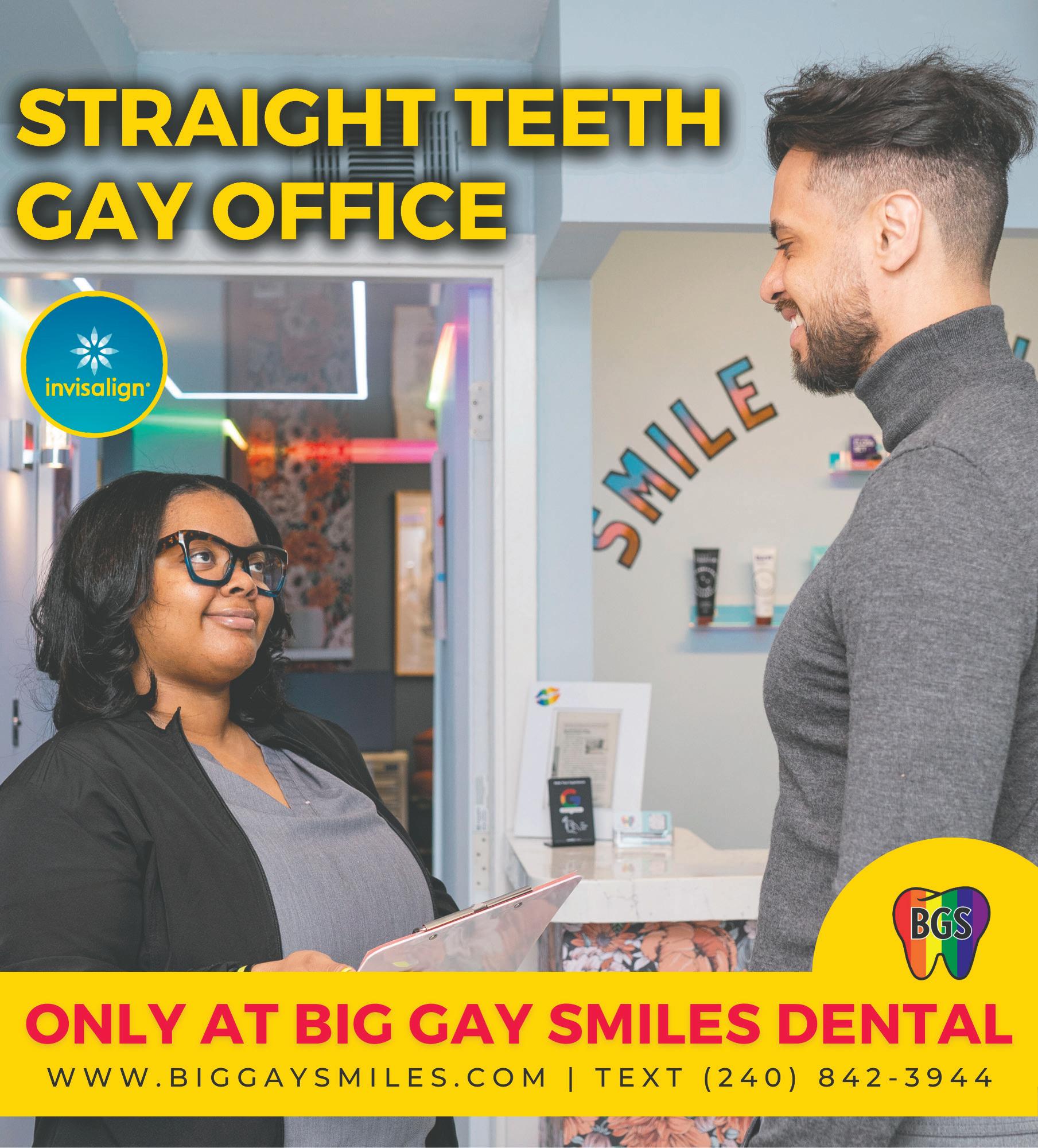
DACEY ROMBERG, MADISON ZUCCO, LUKE LAMBERTI, and XAN WOLSTENHOLME-BRITT are with Sanford Heisler Sharp.
Around the country, Women’s Bills of Rights (“Women’s BoRs”) have emerged as a mechanism to spread anti-transgender policy under the guise of women’s rights. These laws redefine terms like gender, sex, woman, and man to binary definitions that exclude protections and recognition of transgender, nonbinary, and in some contexts, intersex individuals. The focus of these laws is on public institutions and facilities, such as restrooms and changing rooms. What do these laws mean for students and employees of public institutions, such as public schools and government agencies? How may private employers react to these laws? We will dive into the rise of Women’s BoR laws, their impact on workplace protections, and what we can expect with the rise of anti-transgender policies.
In early 2022, Independent Women’s Voice and the Women’s Liberation Front introduced the Women’s BoR as model legislation seeking to limit legal recognition of sex to one’s sex assigned at birth. While both groups identify as women’s advocacy organizations, Independent Women’s Voice and the Women’s Liberation Front have long sought to limit the rights of transgender Americans as a primary area of focus. The Women’s BoR entered mainstream politics when Republicans in the House of Representatives and Senate attempted to endorse the legislation in a resolution in 2022. While federal attempts to pass a national Women’s BoR have not been successful, states have begun to adopt similar bills. Throughout 2023 and 2024, state legislators in Kansas, Louisiana, Montana, Mississippi, Oklahoma, Tennessee, and Utah enacted statutes based on the federal bill.
Advocates frame Women’s BoR as supporting women, but they do not positively affect or protect cisgender or transgender women; in actuality, their only impact is to exclude transgender Americans from legal recognition and erase the experience of nonbinary and intersex individuals. In light of this worrisome impact, transgender, nonbinary, and intersex people may wonder what protections they have in workplaces if their state has passed a Women’s BoR. Each state’s Women’s BoR is unique depending on what laws it sought to amend and how far-reaching its impact will be, but clear throughlines exist nationwide. Transgender, nonbinary, and intersex employees are affected by the redefinition of terms including sex, gender, men, and women, as legislators use outdated and transphobic lenses to categorize individuals and essentially erase any protection of those who do not identify as cisgender women or men. Furthermore, some of these bills place legal consequences on transgender, nonbinary, and intersex employees who use public facilities that align with their gender identity. For example, under the Louisiana Women’s Safety and Protection Act, an individual who alleges they have suffered “any direct or indirect harm as a result of a violation of” this law may file a lawsuit against the party in violation for relief that may include injunctive relief (a court order to do something or to stop doing something) and attorney fees, damages, and costs associated with the lawsuit. The state seems to be incentivizing these cases by waiving a procedural hur-
dle that is usually required to get an injunction.
What do these bills mean for transgender, nonbinary, or intersex employees that are employed in states that have enacted a Women’s BoR? If the individual is employed by a state government, public school, or another form of public institution, that institution may take the position that only cisgender employees are protected by the state’s anti-discrimination laws, which they may now interpret as only applying to cisgender women and men.
Oklahoma’s Women’s BoR states that “any policy, program, or statute that prohibits sex discrimination shall be construed to forbid unfair treatment of females or males in relation to similarly situated members of the opposite sex.” By stating that laws only forbid “unfair treatment of females or males,” the bill may result in transgender, nonbinary, and intersex employees no longer being covered by the Oklahoma Anti-Discrimination Act. Montana similarly appears to have passed legislation that limits “sex discrimination” to only males and females, which could be interpreted as removing transgender, nonbinary, or intersex individuals from the protections of the Montana Human Rights Act.
These employees may still be protected by federal anti-discrimination laws, though, including Title VII of the Civil Rights Act, which prohibits employment discrimination based on gender identity. For instance, if a transgender employee is barred by their employer from using the office locker room that aligns with their gender identity, they may be able to establish a Title VII violation. Similarly, a Title VII or Affordable Care Act violation may be established where a transgender employee is denied coverage for gender-affirming care but cisgender employees are covered for the same procedure or treatment.
Though not all have been labeled Women’s BoR, more than 40 “re-definition” bills were introduced in state legislatures this year, according to the ACLU, marking a significant increase in this type of legislation. This indicates a concerted effort by certain political groups to roll back protections and recognition for transgender and nonbinary individuals. This legislative push not only threatens to erode hard-won rights but also fosters a climate of discrimination and exclusion. As these bills have gained traction in the past few years, it becomes increasingly important for employers and allies to stay informed and engaged to protect and advance the rights of transgender and nonbinary individuals at both the state and national levels.
It is essential for public and private employers to understand the implications of these laws and how they might affect their workforce. When possible, employers should be proactive in counteracting harmful policies by incorporating specific protective language into their company policies and providing robust support systems for their transgender, nonbinary, and intersex employees. This could involve conducting informational sessions to ensure that employees know their rights and the potential impacts of these laws.
While public employers in states that have passed Women’s BoRs may be more limited in how they can support their transgender, nonbinary, and intersex employees, private employers can support their employees by implementing inclusive policies and practices such as anti-discrimination policies that explicitly protect gender identity and expression; providing comprehensive healthcare benefits that cover gender-affirming treatments and ensuring that facilities, such as restrooms, are accessible to all employees. Additionally, providing support networks, such as employee resource groups, and ensuring that all employees are aware of and have access to these resources can significantly enhance the sense of belonging and safety for transgender, nonbinary, and intersex employees. By doing so, employers can create a more inclusive and supportive work environment, helping to mitigate the negative effects of these legislative changes on their employees.
By DACEY ROMBERG, MADISON ZUCCO, LUKE LAMBERTI and XAN WOLSTENHOLME-BRITT
Coping with parental rejection a common struggle for LGBTQ
(Author’s note: The content of this article may be triggering for some readers. If you or someone you know struggles with suicidal ideation, support can be found by calling or texting 988.)
In becoming a barback, I dove headfirst into the underbelly of fast-paced, homoerotic nightlife, which can be as stressful as it is fun but almost always entertaining. For me, though, the best part has been the camaraderie formed with my staff, in particular the other barbacks, all of whom bust ass behind the scenes while sharing laughs and memes along the way. Among this crew I’ve formed solid, healthy friendships, although it’s Marsel in particular who sees me in a way most in D.C. never has. At first, I wasn’t sure if Marsel and I would get along. He’s ripped, tatted, confident, and hot, which is essentially the recipe for intimidating. Then we worked bar
shifts together and I finally got to know him. Turns out he’s insanely witty, kind if you’re not an asshole, and overall easy to talk to. As it so happens, he and I are quite similar: two gays in our mid-30s working as barbacks who ended up in D.C. after growing up in rural, ruby-red states. Still, one parallel stands out above the rest: we both also have daddy issues.
That’s right—it’s a cliché and often a punch line of jokes (which can still be funny, by the way), but the reality for many queers is rejection from one or both parents. For some, including Marsel and me, the traits of a toxic parent warps childhood beyond just conservative thinking. Case in point: both of our dads harbored deeply rooted anger and resentment, making their reaction to learning who we are seemingly inevitable.
For Marsel, that pivotal moment came when his par-
is a D.C.-based writer and barback.
ents discovered he had a boyfriend in high school. In addition to filling his mind with fears about being gay, “they made me switch schools, severely monitored all my communications, what I would wear to school, and who I could hang out with. I spent the remainder of my high school years alone with no friends, isolated in a rural town outside of Nashville.”
A few years later, Marsel’s parents kicked him out upon learning he engaged in sexual activity with men. “They expelled me from the family home and, for many years, treated me as though I no longer existed to them. I spent the better part of a year living in my car and the rest of the time couch-surfing, relying on the kindness of friends.”
CONTINUES ON PAGE 18






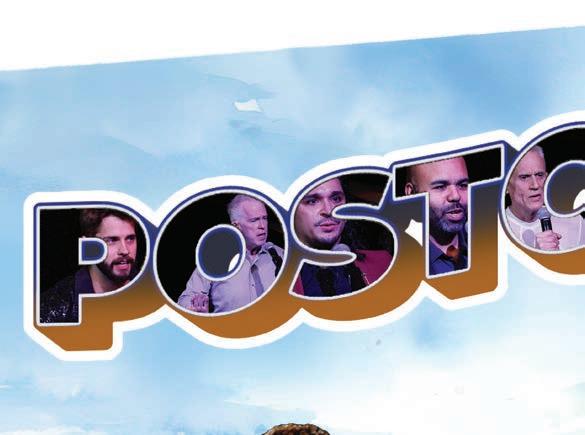







CONTINUED FROM PAGE 16
As for me: my dad served dual roles as patriarch and specter of my family. He was abusive physically and verbally, though still I tried maintaining a connection to the guy, likely fueling my attraction to mean guys but that’s another story. Despite my efforts, my father abruptly ended our relationship shortly after I came out. In our last phone call, he couldn’t even say the word gay, choosing instead “the way you are.” From there he listed everything he disliked about me, none of which was my homosexuality because these days no one admits so boldly to prejudice. Instead, they gaslight you with every other vulnerability as justification for mistreating you.
It’s been well over a decade since I’ve spoken to or even seen my father, and at this point I’m certain he’ll happily march to his grave without seeing me again. Losing a parent is always hard. Losing one because they don’t want to love you anymore, well— it’s a searing pain that rips your heart wide open. I wouldn’t wish it on my worst enemy. Sadly, stories like these are far from unique among queers, nor are they the sole trauma we experience. From living in shadows and in shame, to schoolyard bullying and alienation, to pressures of religion or toxic masculinity, to a higher likelihood of sexual violence or discrimination in the workplace, we are affronted with so many traumas they’re nearly a marker for our kind. This also doesn’t include intersectionality with other traumas, such as a growing up in America a woman, a person of color, or poor. It’s no wonder, then, that the National Institutes of Health (NIH) published a review last year declaring, “LGBTQ people are at higher risk of PTSD compared with their cisgender/heterosexual peers.”
To most queers, what I just described is neither new nor surprising. In fact, in the face of this collective trauma, queers often come together in the form of fundraisers or Pride events. Yet despite rallying around the common inputs of our trauma, we rarely discuss the outputs. That’s right — emotional trauma has outputs, as neuroscience has proven, and when left untreated those outputs emerge as toxic traits in our adult lives. To illustrate, let’s take it back to Marsel. While he hoped to leave his past behind in Tennessee, that wasn’t the case. “For things I hadn’t fully processed or dealt with, my past trauma would bubble up to the surface in the form of emotional triggers, which would inevitably spark my anger. My anger manifested in various ways, and I would often find reasons to justify my behavior. I was angry about my relationships, angry about my body, angry about my career – basically, I was angry about everything. And the root of all that anger was the unresolved trauma I hadn’t properly addressed.”
bursts, cost me more relationships, and once landed me a night in jail. The further I unraveled, the more I numbed it with heavier drinking, darker sex, harder drugs, until finally — it pains me to write, but for the sake of honesty I must — I was contemplating, threatening, and attempting suicide.
Sorry to get heavy, but it’s important to dissect why and how queers experience emotional hardship. We don’t struggle simply because we’re queer but rather due to the trauma thrust upon us by a world that still fears queers. As a result, normal events — such as a breakup or losing a job — can feel insurmountable, like proof that those who rejected us were right all along.
Thankfully, queers can rely on each other for support, right? Sounds nice in theory, but in practice we D.C. gays are pretty fucking mean to each other. Sure, we find our friends, but often our community is itching to judge us at every corner. We throw insults, ostracize those deemed “crazy,” and constantly seek validation from people we (Instagram) deem perfect. And no, I am not above this. I’ve been a narcissist. I’ve burned bridges with glee. Looking back, it was my inner turmoil bursting at my seams.

Marsel summarized our behavior well: “Everything is a trauma response. That mean gay you see at the bar – trauma response. That gym obsessed muscle queen – trauma response. That career-driven type-A Capitol Hill gay – trauma response. Most of the time I find when people are treating me a certain way, it has little to do with me and everything to do with their own trauma.”
So, we find ourselves amid a queer trauma cycle in which hurt queer people hurt more queer people. Sounds bleak, but the good news is we also have the power to change that. And we must, for a recent survey by the Trevor Project found a staggering 41 percent of LGBTQ+ youth aged 13 to 24 considered suicide in the last year alone. Queer trauma isn’t going away, so it’s on us to avoid bestowing our trauma to younger queers and instead provide a safe community not only to thrive but to experience inevitable lows as well. That may seem like a tall order, but based on what I’ve learned from Marsel, two measures can move us closer.
I couldn’t relate more. I tried to be tough and pretend I didn’t care that my father abandoned me, but the thought still crossed my mind and crushed me every time. Then I took that pain and subconsciously projected my anger everywhere — onto friends, onto other gays, onto myself, but especially onto my relationships, where I’d swing like a pendulum between states of hyperattachment and hyperdetachment with almost no in-between. Steadily, my unresolved trauma chipped away at my selfworth, and once that goes, self-destruction is inevitable.
Since the path to self-destruction is riddled with more trauma, the downward spiral only gets steeper. “My most impactful and lasting piece of trauma occurred two days before my 25th birthday,” Marsel told me. “The summer of 2013 I had been more than reckless with the frequency of my sexual encounters. I had often done pretty dangerous and wild things in regard to meeting up with guys. Then, on Dec. 10, 2013, I found out I was HIV positive.
“At the time it was quite Earth-shattering news because I knew no one who was positive and had no idea what this would mean for me. I was pretty hard on myself for being reckless, and it took a bit to pick myself up, but over time I used it to inspire me to live my life fully and authentically.”
Often it takes Earth-shattering events to serve as a wakeup call for change. When my PTSD transformed into social anxiety, it was easy to suppress at first with sex, drugs, and most often alcohol, which inevitably led to the occasional outburst, or the loss of a friend. Yet still I’d go out, even more anxious I’d run into newly formed enemies, so I’d drink more, at times pre-gaming by myself before pre-gaming with others before eventually stumbling into the bars. Naturally this facilitated more out-
First is simple self-reflection, for when trauma goes unnoticed it grows steadily like mold, potentially upending your behavior without you even noticing. “As I moved through different stages of my life,” Marsel explained, “I began to see how this unprocessed trauma and anger influenced so many aspects of who I had become. It colored my reactions to conflict, my relationships with others, and even my relationship with myself.”
The only way to process trauma is to excavate your mind and dissect underlying memories and feelings, which can be accomplished in many ways including journaling, art, or my personal favorite: therapy. While I didn’t start therapy until my 30s, taking that leap became a life-changing, and potentially lifesaving, decision. “Through therapy,” added Marsel, “I was able to uncover the reasons why this trauma continued to follow me throughout my life and how it manifested.”
It all sounds so simple: get therapy, and you’ll get better. However, therapy only goes as far as you let it. Progress is never linear and brutal honesty is a must; as a result, not everyone gets there (no judgment though, for I’m not all the way there myself). In fact, my hardest step was admitting I needed therapy at all, for seeing a therapist is often treated like spotting a UFO — no one wants to admit it out of fear of looking insane. However, often the fear of appearing crazy leads to the most toxic behavior, as I’ve witnessed in D.C. time and time again.
To heal requires dissolving the ego. While tough, it’s truly the first and most important step.
As for the second measure: we need to cut each other some slack. No, this doesn’t mean excusing terrible behavior, but it does mean holding the belief that others — including and especially your queer enemies — can grow. If not, then tell me: who’s supposed to believe in your growth if you don’t believe in the growth of others? And if your response is you don’t need to grow, you likely have the most growing to do.
Writing off one of us is writing off all of us, and if we keep
By JAKE STEWART


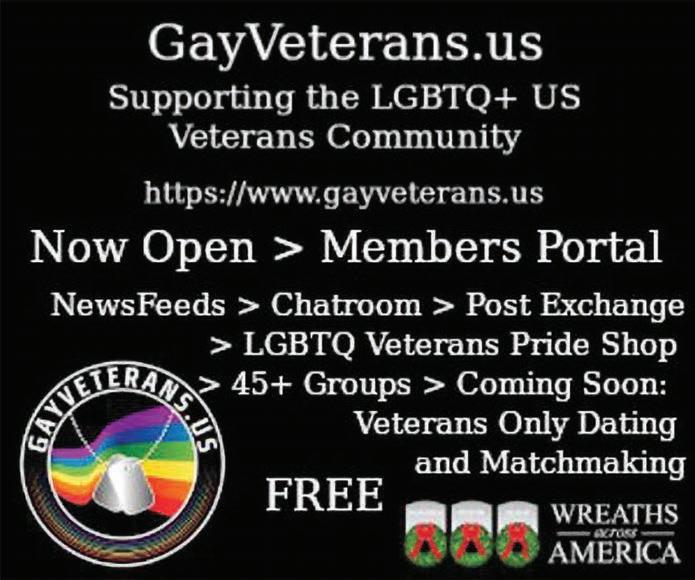

is a longtime LGBTQ rights and Democratic Party activist. He writes regularly for the Blade.
Since before 1969 and Stonewall in New York, activists have fought, many literally risking their lives, for the rights of the LGBTQ community. Fifty years ago, in 1974, Congresswoman Bella S. Abzug (D-N.Y.) introduced the original Equality Act in Congress. While we have made huge progress since that time, including gaining marriage equality, the rights of the LGBTQ community are still far from guaranteed.
Too many today don’t realize after 50 years, Congress still has not passed the Equality Act. Just as after 101 years since it was introduced in Congress, the ERA has still not been added to our Constitution. The LGBTQ community must understand in 37 states you can get married on Sunday, and fired from your job, and thrown out of your home, on Monday. Donald Trump and J.D. Vance are OK with that. That is what they mean when they keep saying they want states to have the right to make decisions on equality. They are OK with states taking women’s rights away, and not guaranteeing the rights of the African-American community. They are not only OK with that, they are fighting for it.












So, it is imperative for the LGBTQ community to come out in huge numbers to vote for Kamala Harris and Tim Walz. If we care about our future, and future generations, it is crucial Harris and Walz win. We need to believe politicians when they talk about what they believe, when it comes to people’s rights. We can debate foreign policy, and the Affordable Care Act. We can debate issues impacting the border. But what should never be a debate in this great nation of ours, is the notion that we are “all equal with certain inalienable rights” and that we have a right to life, liberty, and the pursuit of happiness. That we will always work toward a more ‘perfect union.’ Those are all the things Donald Trump, and J.D. Vance, oppose.
They are happy to take us back to the time women couldn’t control their own healthcare; to when African Americans had to fight for their right to vote. To when members of the LGBTQ community had to hide who they were born to be, to protect their health and safety. Trump was presented with a pledge by the Christian nonprofit, Concerned Women for America, and asked to sign it. It stated “a person’s ‘gender identity’ doesn’t overrule their sex,” and that if he becomes president again, “all federal agencies will be directed to uphold this fact in every policy and program at home and abroad.” Such a promise would have wide-ranging implications, the form emphasized, “affecting schools, prisons, shelters, health-care providers, the military and more.” He signed it.
J.D. Vance, Trump’s MAGA running mate, “expressed his support for so-called ‘Don’t Say Gay’ laws prohibiting discussions of sexual orientation and gender identities in schools, writing, ‘I’ll stop calling people ‘groomers’ when they stop freaking out about bills that prevent the sexualization of my children.’” Vance’s use of the “groomer” slur, often used by right-wingers to claim that LGBTQ people and allies want to sexually abuse children, and his claim that merely educating kids on queer issues “sexualizes” them both echo the anti-LGBTQ rhetoric of “parents’ rights” groups like Moms for Liberty. He opposed the military’s LGBTQ-inclusion efforts as well as its efforts to root out white supremacists from its ranks. His campaign website claims that American political leaders are “using America’s military as a social justice side project. Our troops don’t need to focus on diversity or equity or any other progressive buzzword.” These are the people who want to sit in the White House, who want to control our lives.
Instead, we can vote for Harris and Walz, who have shown us who they are. Vice President Harris is part of the administration that has done more for the LGBTQ community than any in history. Tim Walz, in 1999, became the first faculty adviser to his high school’s gay-straight alliance group in Mankato, Minn. Harris is talking directly to the LGBTQ community when she says, “We will not go back.” We will not go back into the closet. We will not go back to being afraid to acknowledge who we are, who we were born to be.
Instead, we will go out and vote proudly to defend our future, and the future of LGBTQ generations who come after us. We will join hands with women, African Americans, young people, and all those who want a better, safer, life; a ‘more perfect Union.’ When we do, we will not be denied; and Trump and Vance, and their MAGA cult, will be relegated to the dustbin of history where they belong.
CARL SCHMID is executive director of the HIV+Hepatitis Policy Institute.
The Biden-Harris administration has a historic opportunity to help end HIV. New, cutting-edge drugs that prevent HIV are hitting the market, but insurance companies are trying to twist the rules to deny access to these remarkable therapies.
The White House could stop these abuses and put the country on the right course for decades ahead and prevent hundreds of thousands of new HIV transmissions.
Pre-Exposure Prophylaxis (PrEP) drugs represent one of the strongest tools we have to combat HIV. These highly effective therapies can reduce the risk of contracting HIV by up to 99%. So far, the FDA has approved two once-daily PrEP pills, and in 2021 approved the first long-acting version of PrEP. Other groundbreaking PrEP innovations, such as a biannual dosage form, are in active development.
PrEP is a major reason why new HIV infections dropped 12% from 2018 to 2022. Yet there’s still work to do. Currently, just 36% of people who could benefit from PrEP are using it. Racial and ethnic groups face wide disparities in PrEP uptake. For example, Black individuals constitute 39% of new HIV diagnoses but only 14% of PrEP users. Hispanics make up 31 percent of new HIV diagnoses, but only 18 percent of PrEP users.
A new federal directive, if properly enforced, could help close these gaps. In August 2023, a panel of prevention experts issued an updated recommendation to clinicians, recommending PrEP — including long-acting forms of the drugs — to people who want to prevent HIV acquisition. Under the Affordable Care Act, most newly issued private health plans must cover without patient cost-sharing to comply with this recommendation beginning this month.
Yet many HIV experts and patient advocates have raised concerns that insurers could misinterpret — or downright ignore — the task force’s decision and keep barriers to PrEP in place.
One top concern is that insurance companies could decide to cover only one kind of PrEP, even though the task force’s recommendation isn’t drug-specific — it applies to all versions. For example, a health plan might refuse to cover long-acting PrEP and force patients to take oral pills instead.
Yet long-acting PrEP is a critical option for many patients, such as those who struggle to adhere to once-daily drug regimens, are unhoused, or have confidentiality concerns. One study found that patients taking long-acting PrEP had a 66% reduction in HIV infections compared to those using oral pills. Another analysis calculated that long-acting PrEP could help avert 87% more HIV cases than oral pills, and could save over $4 billion over the course of a decade.
Another concern relates to insurers’ increasing use of “prior authorization,” a practice in which health plans refuse to cover certain drugs unless doctors obtain prior permission. Insurers could also force patients to try a number of therapeutic alternatives before agreeing to cover the medicine they and their doctors agreed upon — this is known as “step therapy.” There’s evidence that “prior authorization” policies may disproportionately impact Black and Hispanic individuals, who are already at higher risk of HIV.
Fortunately, these insurer-imposed barriers aren’t inevitable. The Biden-Harris administration, through the Centers for Medicare & Medicaid Services (CMS), has an opportunity to issue clear, detailed guidance that ensures health plans follow through on the legal requirement to cover PrEP for all eligible patients and at no cost.
CMS’s guidance should clarify that insurance companies are obliged to cover all FDA-approved versions of PrEP, including both daily pills and long-acting injectables. When now Vice President Harris was Sen. Harris, she introduced groundbreaking legislation called the PreP Access and Coverage Act, which would require all insurers to cover all forms of PrEP without cost-sharing and prior authorizations. So we know where she stands on the issue.
A number of states, including New York and California, have already established similar coverage requirements and prohibitions on prior authorization for PrEP.
A similar requirement already exists for contraception. Plans are required “to cover without cost sharing any contraceptive services and FDA-approved, -cleared, or -granted contraceptive products that an individual’s attending provider determined to be medically appropriate.”
CMS just needs to adopt language along these lines for PrEP. Doctors — not insurance companies — should decide which drugs best suit patients’ needs.
Thanks to revolutionary research happening every day, people with a reason to be on PrEP have more options available to them than ever before. Yet insurers are intent on restricting access to these innovative therapies. New federal guidance can help combat this and if properly enforced set us on a path toward ending HIV.


Sunday, October 6th 12-3: Bavarian Brunch and Live German Folk Music
Sunday, October 12th 12-3: Pig Roast
Sunday, October 13th 3-6pm: Live German Folk Music
Monday, October 14th 2-5pm: Kidstoberfest with Live German Folk Music
Sunday, October 20th 12-3: Bavarian Brunch and Live German Folk Music
DINNER: LUNCH: HH: WED-SUN 3-10PM WED-FRI 11:30-2:30PM WED-FRI 2-6PM



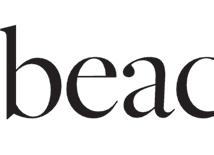
























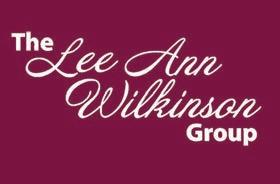





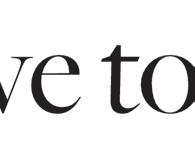
















































In 2017, Jon Paul was suicidal. In nearly every place Paul encountered, there were signs that consistently reminded the transgender community that their presence in America by the far right is unwelcomed.
Former President Donald Trump’s anti-trans rhetoric is “partly” responsible for Paul’s suicidal contemplation.
“I’m driving out of work, and I’m seeing all of these Trump fl ags that are telling me that I could potentially lose my life over just being me and wanting to be who I am,” Paul said. “So, were they explicitly the issue? No, but did they add to it? I highly would say yes.”
During Trump’s time as president, he often disapproved of those who identifi ed as transgender in America; the former president imposed a ban on transgender individuals who wanted to join the U.S. military.
“If the world keeps telling me that I don’t have a reason for me to be here and the world is going to keep shaming me for being here. Then why live?” Paul added.
The rhetoric hasn’t slowed and has been a messaging tool Trump uses to galvanize his base by saying that Democrats like Vice President Kamala Harris “want to do transgender operations on illegal aliens that are in prison.” Trump made that claim at the presidential debate against Democratic presidential nominee Kamala Harris.
Not only do Trump’s actions hurt Paul, but they also affect 17-year-old Jacie Michelleé, a transgender person at Friendly Senior High School.
“When former President Donald J. Trump speaks on transgender [individuals] in a negative light, it saddens my heart and makes me wonder what he thinks his personal gain is from making these comments will be,” Michelleé said.
“When these comments are made toward trans immigrants or the transgender community, it baffl es me because it shows me that the times are changing and not for the better,” Michelleé added.
By EDEN HARRIS

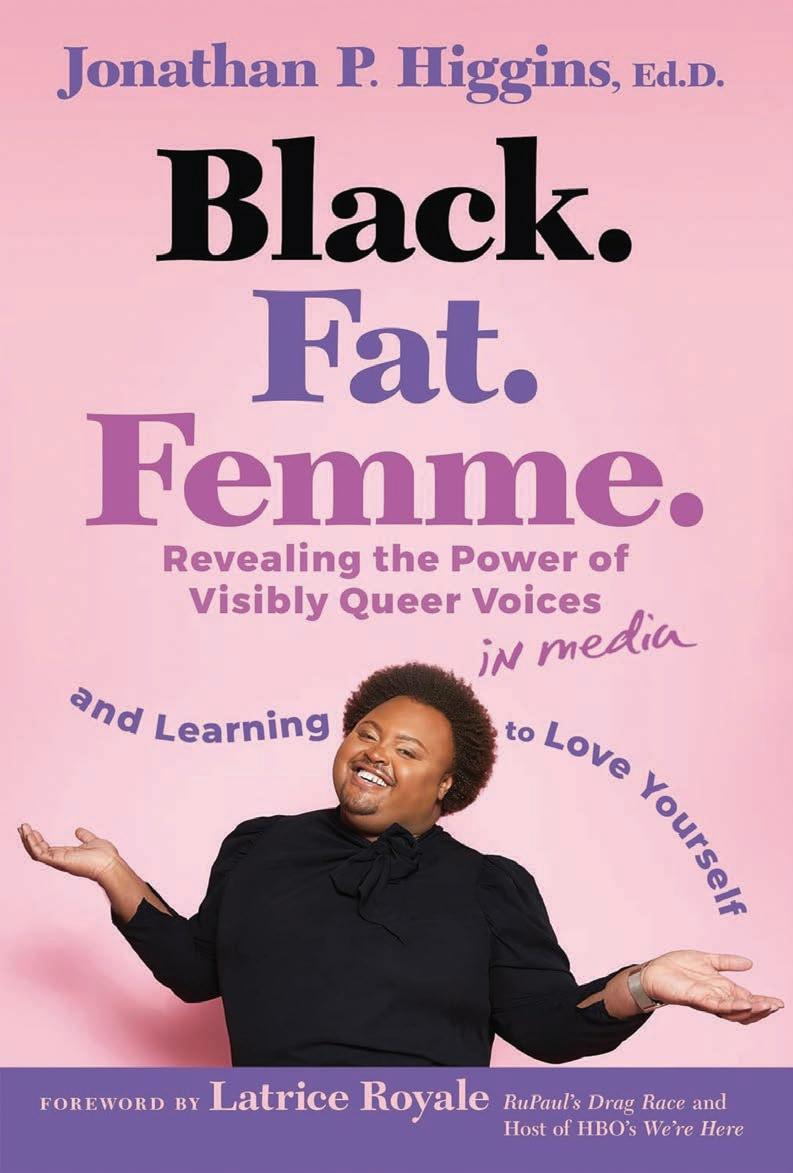
The Congressional Black Caucus Foundation responded to Trump’s rhetoric that opposes the transgender community and how it affects democracy through programming at its Annual Legislative Conference in Washington.
“Our agendas are not set by what other groups are saying we should or shouldn’t do. It is set by our communities and what we know the needs and the most pressing needs are for the Black community, and we know that our global LGBTQAI+
communities have needs; they are a part of our community,” said Nicole Austin-Hillery, president and CEO of the Congressional Black Caucus Foundation.
One pressing need is suicide prevention, which the National Institute of Health deems necessary, as 82% of transgender individuals have reported having suicidal thoughts, while 40% have attempted suicide. This research applies to individuals like Paul, who reported contemplating suicide.
But instead of choosing to selfharm, Paul met Latrice Royale, a fourth-season contestant on “RuPaul’s Drag Race,” who was awarded the title of Miss Congeniality while on the show. Paul said that meeting brought meaning when there was barely any left.
“It was like I met them at a time where I really, truly, not only needed to see them, but I needed to be able to actively know ‘girl’ you can live and you can have a really a good life, right? And Latrice was that for me,” Paul said.
Though Trump is representative of a lot of movements that are clashing with society, the Democratic Party is actively pushing back against anti-transgender movements and says there is “still much work to be done.”
Not only did Royale model success for Paul, but they also share the same appearance. Paul proudly identifi es as “fat” and uses this descriptor as a political vehicle to empower others in the book “Black Fat Femme, Revealing the Power of Visibly Queer Voices in the Media and Learning to Love Yourself.”
“My book, my work as a Black, fat femme, is inherently political. I say this at the very front of my book,” Paul said. “All three of those monikers are all three things in this world that the world hates and is working overtime to get rid of.”
“They’re trying to kill me as a Black person; they’re trying to get rid of me as a fat person. They are trying to get rid of me as a queer person,” Paul added.
Besides Paul’s political statements, the book’s mission is to give those without resources a blueprint to make it across the fi nish line.
“I want them to look at all the stories that I share in this and be able to say, ‘wow,’ not only do I see myself, but now I have a roadmap and how I can navigate all of these things that life throws at me that I never had, and I think that’s why I was so passionate about selling and writing the book,” Paul said.



BALLET HISPÁNICO
Saturday, Oct. 5 at 8 p.m.
Vibrant dance from one of America’s cultural treasures
MARK MORRIS
GROUP AND MUSIC ENSEMBLE
Saturday, Oct. 19 at 2 and 8 p.m.
A program from “the most successful and influential choreographer alive” (New York Times)
Sunday, Nov. 10 at 7 p.m.
Don’t miss this 10-time GRAMMY Award-winning jazz virtuoso and Kennedy Center Honoree!
VIRGINIA OPERA CARMEN
Saturday, Nov. 16 at 7:30 p.m.
Sunday, Nov. 17 at 2 p.m.
This acclaimed company brings Bizet’s passion-filled masterpiece to life
Celebrating 100 years of local media for and by our community.
The first gay publication in America was 100 years ago this year—1924’s Friendship & Freedom, produced by Henry Gerber. It was shut down by police after just two issues. Through the years, LGBTQ+ media faced similar censorship and hardships. But 100 years later, there is a chance to revitalize this journalism and make it stronger to face the anti-LGBTQ+ backlash, providing critical coverage of this vital part of the U.S. media landscape.
This first year, with one donation, you can support six of the top LGBTQ+ outlets serving our community: n Bay Area Reporter n Dallas Voice n Philadelphia Gay News n Washington Blade n Windy City Times n Tagg Magazine
This project is a program of News Is Out, a collaboration of six of the top local LGBTQ+ media across the country, supported by Local Media Foundation, a 501(C)(3) organization. Tax-deducible donations can be made anytime from now until Oct 8th.
Learn more here: givebutter.com/LGBTQequityfund





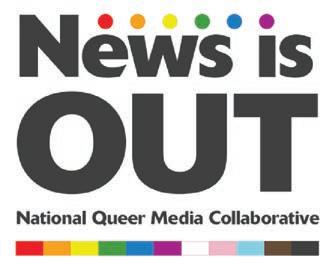


Friday, October 04
“Center Aging Friday Tea Time” will be at 2 p.m. on Zoom. This is a social hour for older LGBTQ+ adults. Guests are encouraged to bring a beverage of choice. For more details, email adam@thedccenter.org.
GoGayDC will host “First Friday LGBTQ+ Community Social” at 7 p.m. at The Commentary. This event is ideal for making new friends, professional networking, idea-sharing, and community building. This event is free and more details are available on Eventbrite.
Saturday, October 05
GoGay DC will host “LGBTQ+ Community Brunch” at 11 a.m. at Freddie’s Beach Bar & Restaurant. This fun weekly event brings the DMV area LGBTQ+ community, including allies, together for delicious food and conversation. Attendance is free and more details are available on Eventbrite.
LGBTQ+ People of Color Support Group will be at 1:00p.m. on Zoom. This peer support group is an outlet for LGBTQ People of Color to come together and talk about anything affecting them in a space that strives to be safe and judgment free. For more details, visit thedccenter.org/poc or facebook.com/centerpoc.
Sunday, October 06
GoGay DC will host “LGBTQ+ Community Dinner” at 6:30 p.m. at Federico Ristorante Italiano Freddie’s Beach Bar & Restaurant. Guests are encouraged to come enjoy an evening of Italian-style dining and conversation with other LGBTQ folk. Attendance is free and more details are available on Eventbrite.
AfroCode DC will be at 4 p.m. at Decades DC. This event will be an experience of non-stop music, dancing, and good vibes and a crossover of genres and a fusion of cultures. Tickets cost $40 and can be purchased on Eventbrite.
Monday, October 07
Center Aging: Monday Coffee & Conversation will be at 10 a.m. on Zoom. This is a social hour for older LGBTQ adults. Guests are encouraged to bring a beverage of their choice. For more details, email justin@thedccenter.org.
Tuesday, October 08
Pride on the Patio Events will host “LGBTQ Social Mixer” at 5:30 p.m. at Showroom. Dress is casual, fancy, or comfortable. Guests are encouraged to bring their most authentic self to chat, laugh, and get a little crazy. Admission is free and more details are on Eventbrite.
Coming Out Discussion Group will be at 7 p.m. on Zoom. This is a peer-facilitated discussion group. It is a safe space to share experiences about coming out and discuss topics as it relates to doing so. For more details, visit the group’s Facebook page.
Trans Support Group will be at 7 p.m. on Zoom. This group is intended to provide emotionally and physically safe space for trans* people and those who may be questioning their gender identity/expression to join together in community and learn from one another. For more details, email supportdesk@thedccenter.org.
Wednesday, October 09
Job Club will be at 6 p.m. on Zoom. This is a weekly job support program to help job entrants and seekers, including the long-term unemployed, improve self-confidence, motivation, resilience and productivity for effective job searches and networking — allowing participants to move away from being merely “applicants” toward being “candidates.” For more information, email centercareers@thedccenter.org or visit www.thedccenter.org/careers.
By TINASHE CHINGARANDE
Virtual Yoga with Charles M. will be at 7 p.m. on Zoom. This is a free weekly class focusing on yoga, breathwork, and meditation. For more details, visit the DC Center for the LGBT Community’s website.
South Asian LGBTQ+ Support Group will be at 7 p.m. on Zoom. KHUSHDC provides a safe, confidential space for South Asian LGBTQ community members to come together and share experiences. This peer support group is an outlet for South Asian-identified LGBTQ individuals to come and talk about anything affecting them. For more details, email board.khushdc@gmail.com.

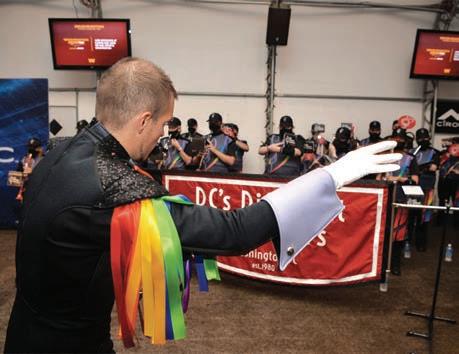
The Washington Commanders are proud to welcome the LGBTQ community for the fourth annual “Pride Night Out!” on Sunday, Oct. 6 at 1 p.m. at Northwest Stadium in Landover, Md. This will be a matchup against the Cleveland Browns. The Pregame Pride Party Pass and Club level game ticket includes premier party location and club level ticket all-you-caneat buffet, beer and wine, an exclusive Commanders Pride T-shirt, pregame entertainment and a postgame photo on the field.
More ticket options are available and $5 of every ticket goes back to Team DC. For more information visit the Commanders’ website.










Cast of ‘Exception to the Rule’at Studio Theatre (SHANA LEE HILL, KHALIA MUHAMMAD, JACQUES JEAN-MARY, SABRINA LYNNE SAWYER, KHOURI ST.SURIN, and STEVEN TAYLOR JR.)
(Photo by Margot
Schulman)
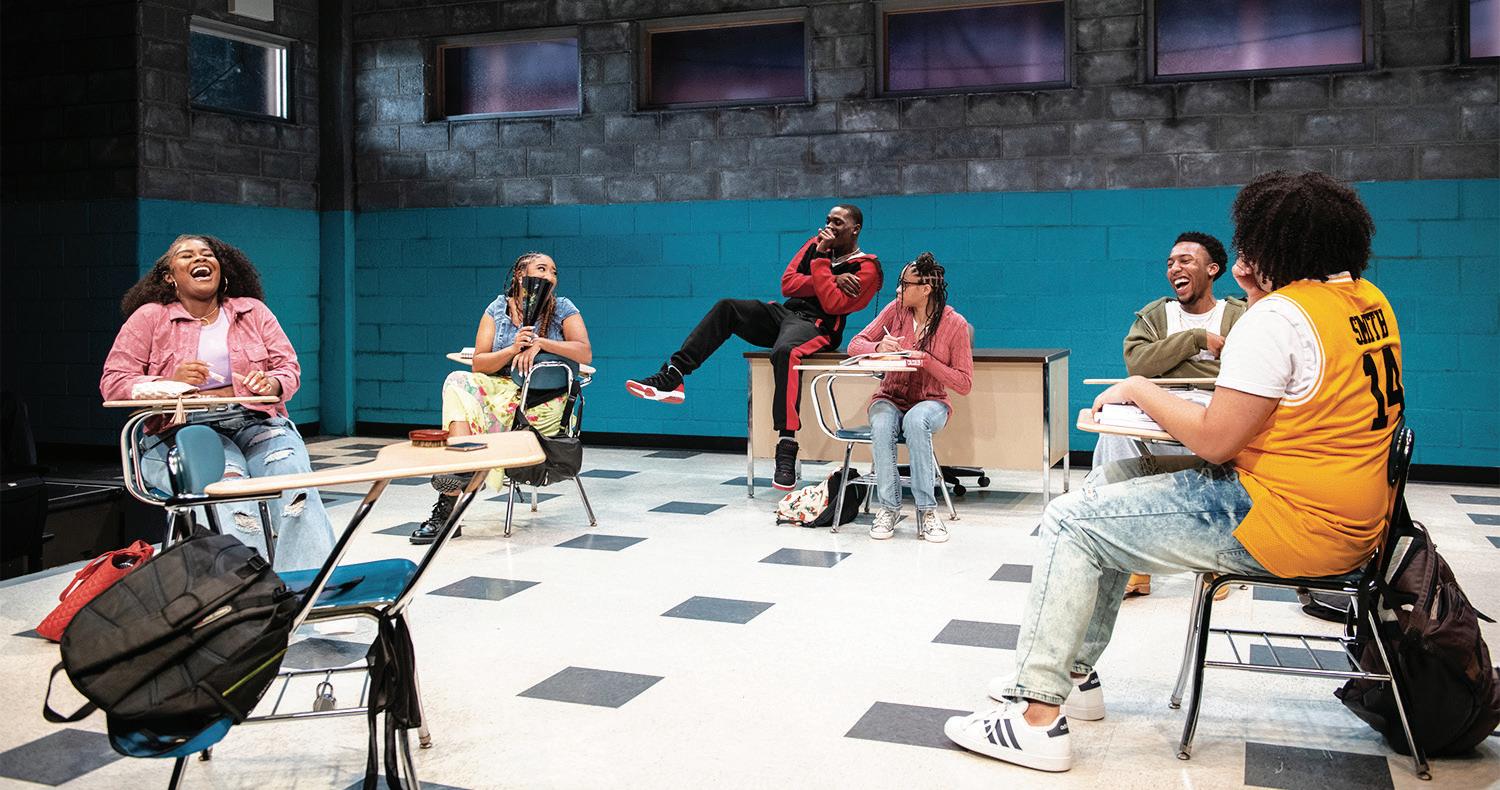
‘Acting their asses off’ in ‘Exception to the Rule’
detention
By PATRICK FOLLIARD
After-school detention is a bore, but it’s especially tiresome on the last day of classes before a holiday.
In Dave Harris’s provocative new play “Exception to the Rule” (now at Studio Theatre) that’s just the case.
It’s Friday, and the usual suspects are reporting to room 111 for detention before enjoying the long MLK weekend. First on the scene are blaring “bad girl” Mikayla (Khalia Muhammad) and nerdy stoner Tommy (Stephen Taylor Jr.), followed by mercurial player Dayrin (Jacques Jean-Mary), kind Dasani (Shana Lee Hill), and unreadable Abdul (Khouri St.Surin).
The familiar is jaw-droppingly altered by the entrance of “College Bound Erika” (Sabrina Lynne Sawyer), a detention first timer whose bookworm presence elicits jokes from the others: What happened? You fail a test?
Dasani (who’s teased for being named for designer water) dubs Erika “Sweet Pea” and welcomes her to the rule-breaking fold. Together the regulars explain how detention works: The moderator, Mr. Bernie, shows up, signs their slips, and then they go. But today the teacher is tardy.
As they wait, the kids pass the time laughing, trash talking, flirting, and yelling. When not bouncing around the classroom, Dayrin is grooming his hair, while Dasani endlessly reapplies blush and lip gloss. At one point two boys almost come to blows, nearly repeating the cafeteria brawl that landed them in detention in the first place.
It’s loud. It’s confrontational. And it’s funny.
Erika is naively perplexed: “I thought detention was quiet. A place where everyone remembers the mistakes that got them here and then learns how to not make the same mistakes again.”
For room 111, the only connection to the outside world is an increasingly glitchy and creepy intercom system. Announcements (bus passes, the school’s dismal ranking, the impending weekend lockdown, etc.) are spoken by the unseen but unmistakably stentorian-voiced Craig Wallace.
Dave Harris first conceived “Exception to the Rule” in 2014 during his junior year at Yale University. In the program notes, the Black playwright describes “Exception to the Rule” as “a single set / six actors on a stage, just acting their asses off.” It’s
true, and they do it well.
Miranda Haymon is reprising their role as director (they finely helmed the play’s 2022 off-Broadway debut at Roundabout Theatre Company in New York). Haymon orchestrates a natural feel to movement in the classroom, and without entirely stilling the action on stage (makeup applying, scribbling, etc.), the out director gives each member of the terrific cast their revelatory moment. In a busy room, we learn that Tommy’s goofiness belies trauma, that Mikayla is admirably resourceful, and most startling, why Erika, the school’s top student, is in detention.
Mr. Bernie is clearly a no-show. And despite his absence, the regulars are bizarrely loath to leave the confines of 111 for fear of catching yet another detention. Of course, it’s emblematic of something bigger. Still, things happen within the room.
While initially treated as a sort of mascot, awkwardly quiet Erika becomes rather direct in her questions and observations. Suddenly, she’s rather stiffly doling out unsolicited advice.
It’s as if an entirely new person has been thrown into the mix.
Not all of her guidance goes unheeded. Take fighting for instance. At Erika’s suggestion, St.Surin’s Abdul refrains from kicking Dayrin’s ass. (Just feet from the audience gathered for a recent matinee in Studio’s intimate Mead Theatre, Abdul’s frustration resulting from anger while yearning for a world of principled order is palpable as evidenced when a single tear rolled down the actor’s right cheek)
Set designer Tony Cisek renders a no-frills classroom with cinder block walls, a high and horizontal row of frosted fixed windows that become eerily prison like when overhead fluorescent lighting is threateningly dimmed.
Still, no matter how dark, beyond the classroom door, a light remains aglow, encouraging the kids to ponder an exit plan.
Studio Theatre | 1501 14th St. NW, Washington, DC $40-$95 | Studiotheatre.org
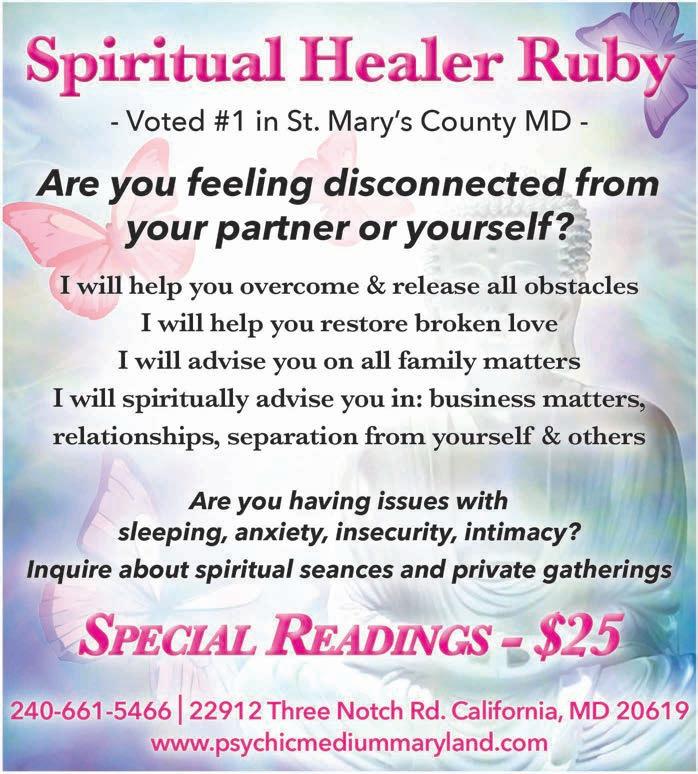









By JOHN PAUL KING
It’s hard to think of a film genre as flexible as the “buddy road trip” movie. After all, it’s adaptable to almost any imaginable combination of buddies, and can easily be framed around a journey to any destination, for any purpose. It can be a comedy, a drama, a thriller, even a sci-fi or fantasy tale. Until “Will and Harper,” however, we never thought there could be a “buddy road trip” documentary.
Yet that is exactly what the Josh Greenbaum-directed film, which premiered at this year’s Sundance Festival and was promptly acquired by Netflix for distribution, manages to become, at least partly by design. And the fact that one of the buddies is none other than Will Ferrell – a beloved “Saturday Night Live” alumnus and one of Hollywood’s most enduring and popular comedic stars –makes it almost impossible to see any other way.
Not that there’s anything wrong with that. “Will and Harper” uses its star power to great effect (and affect), following likeably oafish “everyman” Ferrell as he sets out on a cross-country drive with comedy writer Harper Steele, whom he met when they were both hired for “Saturday Night Live” in 1995 and went on to become one of his closest friends. The twist? Steele, after years of presenting as male, came out as a trans woman during the COVID pandemic, and their trip is undertaken as a way to forge a new path forward in their friendship. The pair, uncertain about the new “ground rules” in their once-comfortable camaraderie, ask the difficult questions, make the uncomfortable confessions, and talk about the things any reasonable person and their newly transitioned bestie have to talk about in order to clear the way for a new dynamic – and, perhaps unsurprisingly, find that the dynamic is still the same, even if some of the pronouns have been rearranged.
That’s only half the story, though; while there’s never really any tension between Ferrell and Steele over the latter’s embrace of her trans identity, nor even any moment when either seems to question their commitment to the friendship, their journey takes place during a drive through the “heartland” of a deeply divided America, in which Ferrell’s celebrity status offers some protection as Steele attempts to overcome her fears of entering the kind of spaces – sports events, dive bars, greasy spoon diners, etc. – she felt safe entering as “Andrew.” While she and Ferrell mostly experience a heartening amount of acceptance from those they encounter along the way, the ugliness of the social media commentary their appearances spark in real time underscores the menace of a deeply entrenched transphobia pervading the darker sectors of our culture.
Even so, Greenbaum shapes his movie – filmed across the real-life 17-day road trip and comprised entirely of unscripted material – not around the politically charged (and perpetuated) debate around trans people’s right to exist, but around the one-on-one effort between two human beings to understand – and figure out where they stand with – each other so they can evolve and adapt their relationship as they go. And while the “hate tweets” rising in the friends’ wake are a depressing reminder of how much bigotry seethes behind the firewalls of our culture’s
algorithm-driven public conversation, the ease and natural flow of their adaptation to the new parameters of their friendship is a powerful counterbalance to the potential “downer” represented by the essentially anonymous commentary and judgments from trolls hiding behind a keyboard. As these two make self-evident, accepting a few new pronouns is really not all that difficult, nor does it need to spark a full-scale existential crisis – and the things that constitute real human connection, the inside jokes and shared experiences and unfiltered feelings that pass between us, as well as the love we feel when we find ourselves truly in harmony with each other, are far more real than the fear-mongering suppositions of the idealogues for whom conformity to the dictated norm is the only “right” way to live one’s life.
Still, on the cusp of an election in which trans and queer rights and protections are very much at stake, it’s important to remember that such trolls have a vote; though they may not be willing to show themselves publicly without a “user name,” they have no qualms expressing their bigotry at the ballot box, which means that “Will and Harper” couldn’t have come at a more appropriate time.
Even if one might quibble over the documentarian “purity” of a film that obviously employs improvisational comedic skills (while the filmmakers’ original notion of manufacturing comedic moments for the camera was abandoned in favor of a more organic approach, there’s no plausible deniability to the observation that two career funny-people are going to be playing toward a punch line whether it’s scripted or not), its populist leanings toward humor, apolitical values, and feel-good sentimentality give it a power to persuade that many more glaringly activist pro-trans documentaries mostly fail to achieve
within a mainstream culture that is unlikely to even watch in the first place. Perhaps even more deeply, its focus on negotiating matters of gender identity and personal autonomy for the benefit of all affected parties resonates as a call to set aside vitriol, rhetoric, and “culture warfare” for the sake of simply dealing with each other as humans, each still on a path of becoming who we are eventually intended – by ourselves, at least, whether consciously or not - to be.
In any case, many fans of Ferrell (who co-produced the film himself) might find themselves conflicted over seeing “Will and Harper” without the MAGA-colored bias that would require them to decry it as “woke propaganda”, and frankly, that’s an inevitable consequence of taking a stand for basic human decency. But it’s also his fearless and unequivocal willingness to support and accept his friend that makes the film such a powerful statement. In truth, even if you’ve never been a particular fan of Ferrell or fully understanding of his appeal, this disarming (if occasionally sentimental) gem of a documentary/improv comedy has odds that say you’ll be a fan by the time the final credits roll.
Funny, intimate, honest, and irresistibly heart-tugging, it’s one of those movies that feels almost like mandatory viewing for queer and queer-friendly audiences. Add the appeal of guest appearances from former-and-current “SNL” players like Seth Meyers, Tina Fey, Kristen Wiig, Colin Jost, Will Forte, Molly Shannon, Tim Meadows, and Paula Pell, and you have the pop documentary of the moment, a testament to unconditional love and acceptance that deserves to be near the top of your fall watch list
Originally given a limited theatrical release in September, “Will and Harper” is now streaming on Netflix.







BETSY TWIGG
Associate Broker | Licensed in Virginia 703.967.4391 (CELL )
McEnearney Associates, Inc. REALTORS 4720 Langston Blvd, Arlington, VA 22207 betsytwigg.com

Equal Housing Opportunity





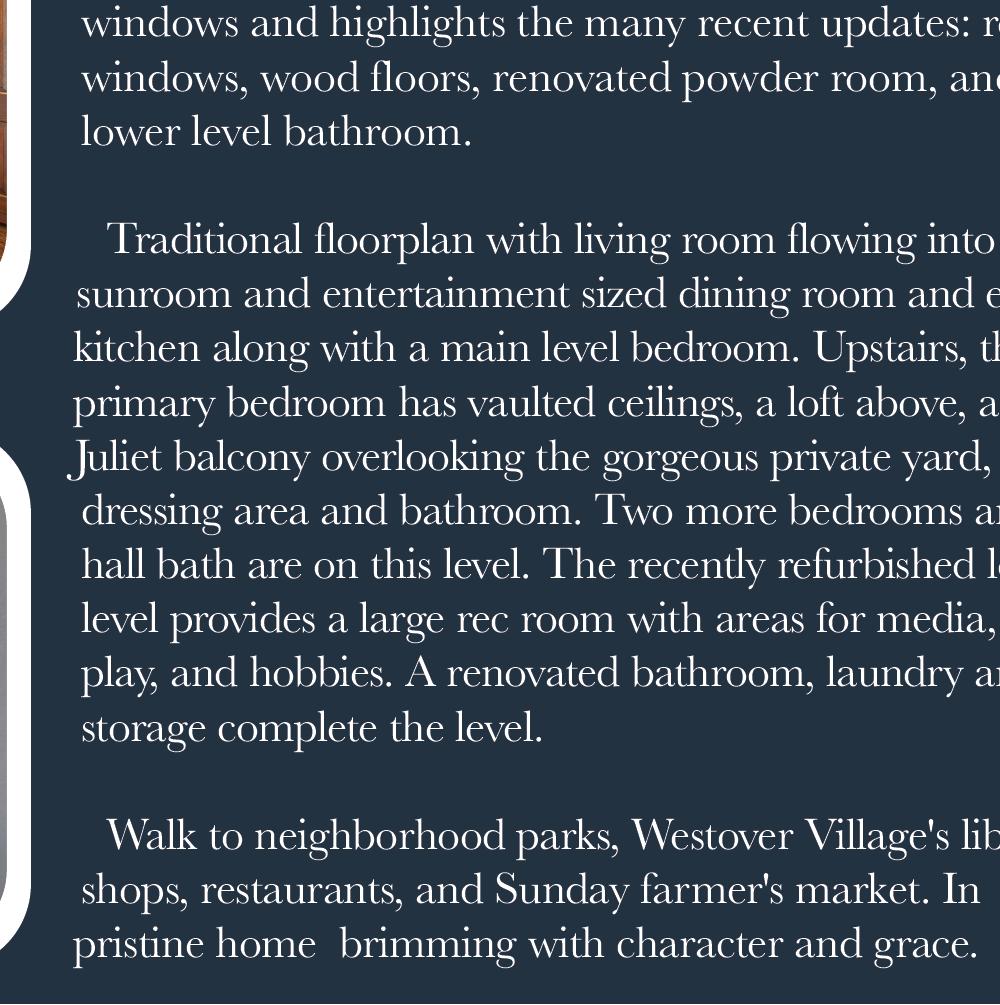
How can I help him when he lashes out?
By MICHAEL RADKOWSKY
Hi Michael,
I’ve been best friends with Chris since we were kids. We’re both gay and both wound up in D.C. after college. And we’re roommates.
The trouble started about a year and a half ago. Chris, who has always liked working out, started getting absorbed in bodybuilding.
He started spending hours a day working out and all these weird powders and supplements started piling up in the kitchen.
Chris became obsessed with building muscle. When he told me he was trying steroids, I told him that was a bad idea but he told me he was doing it under medical supervision and I shouldn’t worry.
In recent months he’s a changed person. He’s short with me a lot, angers easily. He got into a few screaming matches with Matthew, his boyfriend, that I overheard. He sounded paranoid and out-of-control. Guess what? Matthew walked out on him.
I’m not proud but I did a little snooping (basically looked in his bathroom) - and the stuff was everywhere.
Last week he lost his job. He wouldn’t tell me why but I am pretty sure it’s due to his increasingly weird and angry behavior. I told him that—and told him that I know he’s using a lot more than he should (is any amount OK?)—and he majorly blew up at me. Now he’s not talking to me and he texted me I should move out and not wait until our lease is up.
I don’t know what to do. I love Chris deeply—but it seems like the guy I’ve known for 20 years is gone and has been replaced by a mean paranoid guy who is driving his life off a cliff.
I’m wondering about letting his parents know. I’ve known them since childhood and


My best friend is addicted to steroids and alienating everyone in his life.
I’m hoping they can talk some sense into him. Or an intervention with all his friends (none of whom he is speaking to anymore for one reason or another, but the real reason is his crazy behavior). Maybe we could confront him and get him to stop.
But I’m not sure what the right thing to do is and don’t want to alienate him completely. Any thoughts or ideas for a good strategy?
Michael replies:
I’m sorry, I know it’s excruciating to watch someone you love struggle with addiction. I don’t think you can get Chris to stop or moderate his use.
You have shared your concerns with Chris, and he’s blown up at you. This is not a guy who wants to look at his life choices critically.
You could tell his parents, but you have to weigh the risks versus benefits. Maybe they would be able to influence Chris to cut back on his steroid use. Or maybe he’d just cut himself off from them as well, further deepening his isolation, and perhaps leading to his being even less tethered to reality.
I would make similar points about an intervention: Sometimes they have a positive impact on the person who is being confronted. Sometimes they don’t do much except rile the person up, and lead him or her to dig further into denial and isolation.
My own experience is that interventions have a greater chance of being helpful when the person can acknowledge the unmanageability of the addiction and is willing to try something different. Chris doesn’t sound like he is anywhere near that point.
Simply put, there’s no easy fix to this, because only Chris gets to decide how he wants to live his life, even if his choices are ruinous.
Here’s what you can do:
First, if Chris starts talking to you again, be supportive without being enabling. This means not criticizing him or telling him what to do; letting him know that you care about him and are there to help if he wants help; not joining him in minimizing the seriousness of his situation; and having a boundary when necessary.
For example:
If there are times when he is pleasant to be with, enjoy them.
If he’s snapping at you for no reason, you can say “hey, it’s not fun to be with you when you’re like this—I’ll see you later.”
If he’s lamenting his job loss, you might reply, “I’m sorry you lost your job—and I’m sure you could take steps to succeed in another job.”
If he attempts to start an argument with you about how his steroid use is not a problem, or that you’re blowing it out of proportion, don’t join the argument. “Sorry, I see it differently, and I’m not going to argue with you about this.”
If he continues to not speak to you, you can still continue to reach out to him nowand-then, in ways that don’t require him to respond, to let him know you that you’ll be there for him if he needs help at some point.
One more thing you can do is get some support for yourself. This is a tough situation for you as well. It’s easy for someone in your situation to feel like you’re doing the wrong thing, no matter what you do.
I’d suggest that you attend at least a few Al-Anon meetings. Al-Anon is a support fellowship for people whose loved ones are struggling with addiction. You’ll get support in recognizing that there really are limits to what you can do; in setting a boundary when you need to; and in knowing that you are not alone.
(Michael Radkowsky, Psy.D. is a licensed psychologist who works with couples and individuals in D.C. He can be found online at michaelradkowsky.com. All identifying information has been changed for reasons of confidentiality. Have a question? Send it to michael@michaelradkowsky.com.)












By VALERIE M. BLAKE
Sadly, we have waved goodbye to summer and are now slowly shifting from enjoying outdoor activities to things we can do indoors. If you are lucky enough to have a basement, renovating it into livable space can be a great winter project to dramatically increase the functionality and value of your home.
Basements come with unique challenges due to their location below ground level, and overlooking critical aspects can lead to long-term problems. They are particularly vulnerable to dampness. Failure to address moisture can lead to mold growth, structural damage, and health hazards.
To tackle moisture control, start by checking for water leaks or seepage through the walls and floor. If moisture is present, you may need to apply waterproofing solutions to the exterior or interior walls of your home. Installing a vapor barrier is advisable to prevent condensation from damaging insulation and walls.
Make sure the basement has proper drainage systems, such as a sump pump and foundation drainage. The sump pump can remove water that collects around the foundation, while an effective drainage system redirects water away from the home. Installing a dehumidifier can also help.
Basements also tend to be colder than the rest of the house. Proper insulation in the walls and floor helps regulate temperature, reducing heating costs in winter and maintaining a cool, comfortable, and energy efficient environment in summer. Insulating the ceiling can reduce noise transfer between the basement and the upper floors, making the space quieter and more private.
Before any significant work begins, it’s crucial to assess the basement’s structural integrity. This includes checking the foundation for cracks or signs of shifting, which could indicate a bigger problem, particular with the plethora of old houses in the area.

If you notice any large cracks or signs of movement, consult a structural engineer or foundation expert to determine whether repairs are needed. Small cracks can be sealed, but larger ones may require reinforcement or more extensive foundation work.
Depending on local building codes, you may need to install egress windows if you are adding bedrooms or turning the basement into a rental unit. Egress windows provide an escape route in case of emergencies and allow more natural light to enter the space, making it feel more welcoming.
When adding a bathroom or kitchen, you’ll find that installing plumbing in a basement can be more challenging because of the need to pump wastewater upwards. You may need a macerating toilet system or a sewage ejector pump to manage this.
I learned this the first time I found that, contrary to what we have been told, water can indeed travel up.

Adding more outlets, lighting, appliances, and ventilation systems may necessitate electrical upgrades. Since basements are often unfinished, you may have exposed wiring, which should be properly enclosed or rerouted to meet code. Depending on the scope of the renovation, you might need to upgrade your home’s electrical panel to handle the increased demand.
Proper ventilation is often overlooked in basement renovations but is essential for maintaining air quality and preventing the buildup of stale air or harmful gases. Installing mechanical ventilation, such as an HRV (Heat Recovery Ventilator) or an ERV (Energy Recovery Ventilator), can help ensure a consistent flow of fresh air in the basement.
Radon, a naturally occurring radioactive gas, can enter homes through cracks in the foundation. Since radon exposure is a leading cause of lung cancer, it’s wise to test for it before beginning the renovation. If elevated levels are detected, you may need to install a mitigation system.
Once the technical aspects are addressed, focus on creating a functional and aesthetically pleasing layout. The design of your basement will depend on how you plan to use the space, whether it’s a guest room, home theater, office, workout area, or game room.
Since natural light is limited in basements, it is important to plan your lighting carefully. Recessed lighting is a popular choice because it doesn’t take up ceiling space, but you should also consider adding floor lamps and sconces to make the space feel brighter and more inviting.
Choose flooring that can withstand moisture, such as vinyl planks, tile, or sealed concrete. Since basements can double as storage areas, consider incorporating built-in shelving, closets, or under-stair storage to maximize the available space.
Whether doing it yourself or hiring professionals, renovating a basement is a rewarding project that can add significant value to your home, but it comes with challenges. From moisture control and insulation to plumbing and air quality, careful planning is crucial to ensure a comfortable, functional, and safe space to enjoy indoor hobbies and emerge from winter free from the Basement Blahs.
is a licensed Associate Broker in DC, MD & VA with RLAH Real Estate / @properties. Call or text her at (202) 246-8602, email her at www.DCHomeQuest.com, or follow her on Facebook at TheRealst8ofAffairs.







MASSAGE FOR MEN

Private studio near Rosslyn/Courthouse, weekends (Fri-Mon), 12-9. Text Gary @301-704-1158 or visit www.mymassagebygary.com
FERNANDO’S CLEANING
Residential & Commercial Cleaning, Reasonable Rates, Free Estimates, Routine, 1-Time, Move-In/Move-Out 202-234-7050 or 202-486-6183

Looking for someone to do secretarial and social media marketing. It could be in person or over the phone. I am located in St. Mary’s County, California, MD. This will be a cash-paid job, looking to hire asap. Call 301-806-6006
Local licensed company with over 25 years of experience. Specializing in bathrooms, kitchens & all interior/exterior repairs. Drywall, paint, electrical, wallpa- per, roofing & siding. Trevor 703-303-8699

ADOPTION, DONOR, SURROGACY
legal services. Catelyn represents LGBTQ clients in DC, MD & VA interested in adoption or ART matters. MODERN FAMILY FORMATION Law Offices, Slattery Law, LLC. 240-245-7765
Catelyn@ModernFamilyFormation.com

Since 1987. Gay & Veteran Owner/ Operator.
Nautilus! Proper DC License &

Renovated brick house, quiet street, 3BR, 2 2 ½ BA, modern kitchen, frpl, hardwood floors, central air, washer/dryer, alarm system, video cameras, exposed brickface, backyard W/deck, cable access, dntwn, St. Prkg, near Logan Circle & Convention Ctr, 1 ½ blocks from metro, no smokers or pets, Avail immed. $4,300/mo + util. View, text/call 202-630 9481 or email ElizaF1633@yhahoo.com for Open Information.
including probate, small estates & foreign estates. Public notices are required to be published in newspapers of general circulation because these venues (now both print & online) reach the largest number of people in the community, while offering an easily archivable & verifiable outlet to make sure the notice was published when & how it was intended. Further, newspapers display notices in the context of other news & information that people in the community read. Newspapers & their associated websites are the appropriate forums for notices that affect citizens & the general public. Ask the court to publish yours in the Blade. The courts will take care of the set-up process. Another way to support your LGBTQ newspaper!
you need assistance, please email the text & image for your ad to:
eds@washblade.com or call 202-747-2077 x 8092 & leave a message. We will be happy to assist you! Email your FREE* personal or housing share ad to us! (*first 25 words are free). Be sure to include your contact information.
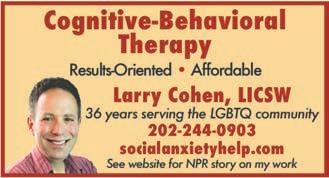

dude to
for me. You won’t be disappointed. Sincere replies only. answer call or text after 9 pm.

for reading
